- Academics /
Creative Writing and Literature Master’s Degree Program
Unlock your creative potential and hone your unique voice.
Online Courses
11 out of 12 total courses
On-Campus Experience
One 1- or 3-week residency in summer
$3,340 per course
Next Start Term

Program Overview
Through the master’s degree in creative writing and literature, you’ll hone your skills as a storyteller — crafting publishable original scripts, novels, and stories.
In small, workshop-style classes, you’ll master key elements of narrative craft, including characterization, story and plot structure, point of view, dialogue, and description. And you’ll learn to approach literary works as both a writer and scholar by developing skills in critical analysis.
Program Benefits
Instructors who are published authors of drama, fiction, and nonfiction
A community of writers who support your growth in live online classes
Writer's residency with agent & editor networking opportunities
Personalized academic and career advising
Thesis or capstone options that lead to publishable creative work
Harvard Alumni Association membership upon graduation
Customizable Course Curriculum
As you work through the program’s courses, you’ll enhance your creative writing skills and knowledge of literary concepts and strategies. You’ll practice the art of revision to hone your voice as a writer in courses like Writing the Short Personal Essay and Writing Flash Fiction.
Within the creative writing and literature program, you will choose between a thesis or capstone track. You’ll also experience the convenience of online learning and the immersive benefits of learning in person.
11 Online Courses
- Primarily synchronous
- Fall, spring, January, and summer options
Writers’ Residency
A 1- or 3-week summer master class taught by a notable instructor, followed by an agents-and-editors weekend
Thesis or Capstone Track
- Thesis: features a 9-month independent creative project with a faculty advisor
- Capstone: includes crafting a fiction or nonfiction manuscript in a classroom community
The path to your degree begins before you apply to the program.
First, you’ll register for and complete 2 required courses, earning at least a B in each. These foundational courses are investments in your studies and count toward your degree, helping ensure success in the program.
Next Start Term: Fall 2024
Course registration is open July 22–August 29.
To get started , explore degree requirements, confirm your initial eligibility, and learn more about our unique “earn your way in” admissions process.
A Faculty of Creative Writing Experts
Studying at Harvard Extension School means learning from the world’s best. Our instructors are renowned academics in literary analysis, storytelling, manuscript writing, and more. They bring a genuine passion for teaching, with students giving our faculty an average rating of 4.7 out of 5.
Bryan Delaney
Playwright and Screenwriter
Talaya Adrienne Delaney
Lecturer in Extension, Harvard University
Elisabeth Sharp McKetta
Our community at a glance.
80% of our creative writing and literature students are enrolled in our master’s degree program for either personal enrichment or to make a career change. Most (74%) are employed full time while pursuing their degree and work across a variety of industries.
Download: Creative Writing & Literature Master's Degree Fact Sheet
Average Age
Course Taken Each Semester
Work Full Time
Would Recommend the Program
Professional Experience in the Field
Pursued for Personal Enrichment
Career Opportunities & Alumni Outcomes
Graduates of our Creative Writing and Literature Master’s Program have writing, research, and communication jobs in the fields of publishing, advertising/marketing, fundraising, secondary and higher education, and more.
Some alumni continue their educational journeys and pursue further studies in other nationally ranked degree programs, including those at Boston University, Brandeis University, University of Pennsylvania, and Cambridge University.
Our alumni hold titles as:
- Marketing Manager
- Director of Publishing
- Senior Research Writer
Our alumni work at a variety of leading organizations, including:
- Little, Brown & Company
- New York University (NYU)
- Bentley Publishers
Career Advising and Mentorship
Whatever your career goals, we’re here to support you. Harvard’s Mignone Center for Career Success offers career advising, employment opportunities, Harvard alumni mentor connections, and career fairs like the annual on-campus Harvard Humanities, Media, Marketing, and Creative Careers Expo.
Your Harvard University Degree
Upon successful completion of the required curriculum, you will earn the Master of Liberal Arts (ALM) in Extension Studies, Field: Creative Writing and Literature.
Expand Your Connections: the Harvard Alumni Network
As a graduate, you’ll become a member of the worldwide Harvard Alumni Association (400,000+ members) and Harvard Extension Alumni Association (29,000+ members).
Harvard is closer than one might think. You can be anywhere and still be part of this world.
Tuition & Financial Aid
Affordability is core to our mission. When compared to our continuing education peers, it’s a fraction of the cost.
| Our Tuition (2024–25 rate) | $3,340 per course |
|---|---|
| Average Tuition of Peer Institutions | $4,330 per course |
| Average Total Cost | $40,080 |
After admission, you may qualify for financial aid . Typically, eligible students receive grant funds to cover a portion of tuition costs each term, in addition to federal financial aid options.
Learn more about the cost of attendance .
What can you do with a master’s degree in creative writing and literature?
A master’s degree in creative writing and literature prepares you for a variety of career paths in writing, literature, and communication — it’s up to you to decide where your interests will take you.
You could become a professional writer, editor, literary agent, marketing copywriter, or communications specialist.
You could also go the academic route and bring your knowledge to the classroom to teach creative writing or literature courses.
Is a degree in creative writing and literature worth it?
The value you find in our Creative Writing and Literature Master’s Degree Program will depend on your unique goals, interests, and circumstances.
The curriculum provides a range of courses that allow you to graduate with knowledge and skills transferable to various industries and careers.
How long does completing the creative writing and literature graduate program take?
Program length is ordinarily anywhere between 2 and 5 years. It depends on your preferred pace and the number of courses you want to take each semester.
For an accelerated journey, we offer year round study, where you can take courses in fall, January, spring, and summer.
While we don’t require you to register for a certain number of courses each semester, you cannot take longer than 5 years to complete the degree.
What skills do you need prior to applying for the creative writing and literature degree program?
Harvard Extension School does not require any specific skills prior to applying, but in general, it’s helpful to have solid reading, writing, communication, and critical thinking skills if you are considering a creative writing and literature master’s degree.
Initial eligibility requirements can be found on our creative writing and literature master’s degree requirements page .
Harvard Division of Continuing Education
The Division of Continuing Education (DCE) at Harvard University is dedicated to bringing rigorous academics and innovative teaching capabilities to those seeking to improve their lives through education. We make Harvard education accessible to lifelong learners from high school to retirement.

DEPARTMENT OF ENGLISH
- Litowitz MFA+MA Program

The Litowitz MFA+MA Program in Creative Writing and English
Program faculty, the department of english is grateful to northwestern university alumna jennifer leischner litowitz ’91 and her husband, alec litowitz for helping launch and support this program..
The Litowitz MFA+MA Program in Creative Writing offers intimate classes, the opportunity to pursue both creative and critical writing, close mentorship by renowned faculty in poetry, fiction, and creative nonfiction, and three fully supported years in which to grow as writers and complete a book-length creative project. The Litowitz MFA+MA curriculum gives students time to deepen both their creative writing and their study of literature. Students will receive full financial support for three academic years and two summers, a total of 33 months. Both degrees—the MFA in Creative Writing and the MA in English—are awarded simultaneously at graduation.
Drawing on innovative scholarship, deep immersion in process, and cross-pollination between critical and creative texts, Litowitz students will complete a Capstone essay—a 20-25 page expanded version of a paper written for an English department graduate or MFA+MA seminar—by the end of their second year, and will spend their third year working on a book-length creative thesis of their own design, either within one genre or across genres. The MFA+MA program's small size and attentive faculty will develop students' sense of literary context, the possibilities of genre, and their creative practice, while encouraging them to pursue the individual distinctiveness of their projects.
The Litowitz MFA+MA program provides significant exposure to a second genre in addition to the genre in which a student has been admitted. Students must take at least one out-of-genre workshop and have the option of taking more.
Over two years of coursework students will take:
| English 403: Writers’ Studies in Literature | Three quarters of a seminar-workshop focused on interpreting literature from a writer’s perspective and on deepening the process and projects of the writer. |
| English 410: Introduction to Graduate Study | Seminar focusing on principles, techniques, and consequences of representative modes of literary inquiry exemplified in works of contemporary scholarship and criticism. |
| English 496, 497, 498: Creative Writing Workshop (Poetry; Fiction; Creative Nonfiction, respectively) | Four workshops in the home-genre One workshop in a different genre One workshop in any genre |
| Graduate-level seminars | Two English seminars focusing on pre-1800 literature Two English seminars focusing on post-1800 literature One seminar in or out of the English department |
| English 571: Teaching Creative Writing | A seminar on designing and teaching undergraduate creative writing courses. |
| English 491: Editorial Practicum | During the summer after the first and second years, each student will register for this practicum, which consists of participating in the editing of . |
In spring quarter of the second year, with advising and mentoring by the faculty, each student will complete the MA Capstone Essay.
In year three, students will be almost wholly dedicated to their creative thesis manuscripts. Third-year students will take three quarters of the MFA Thesis Workshop/Tutorial.
Some students will complete their MFA thesis manuscript by the end of this year; others will wish to take more time. The Graduate School permits students to submit the culminating project for the MFA at the end of full-time enrollment, or afterward.
In all three years, students will be mentored by the faculty in the practice of their writing, the design of their projects, and regarding artistic and intellectual resources for their work. In the teaching of creative writing and, through summer editorial work at TriQuarterly.org , students will get first-hand experience in editing a literary journal.
Visiting writers (including some anglophone international writers) will bring new perspectives to artistic practice, the three genres, and cross-genre or multi-genre work.
Students will pursue their work on our beautiful Evanston campus, amid artists, filmmakers, scholars and public intellectuals, with easy access to the vibrant literary arts scene of Chicago.
Admissions Cycle
Each year, the MFA+MA program admits new students in two of our three genres. The genres in question rotate annually. Information on the application process and the genres in which applications will be considered can be found here .
| You might be using an unsupported or outdated browser. To get the best possible experience please use the latest version of Chrome, Firefox, Safari, or Microsoft Edge to view this website. |
Earning A Master’s In Creative Writing: What To Know

Updated: Nov 1, 2023, 1:51pm

Do you want to create written work that ignites a reader’s imagination and even changes their worldview? With a master’s in creative writing, you can develop strong storytelling and character development skills, equipping you to achieve your writing goals.
If you’re ready to strengthen your writing chops and you enjoy writing original works to inspire others, tell interesting stories and share valuable information, earning a master’s in creative writing may be the next step on your career journey.
The skills learned in a creative writing master’s program qualify you to write your own literary works, teach others creative writing principles or pursue various other careers.
This article explores master’s degrees in creative writing, including common courses and concentrations, admission requirements and careers that use creative writing skills. Read on to learn more about earning a master’s degree in creative writing.
Why You Can Trust Forbes Advisor Education
Forbes Advisor’s education editors are committed to producing unbiased rankings and informative articles covering online colleges, tech bootcamps and career paths. Our ranking methodologies use data from the National Center for Education Statistics , education providers, and reputable educational and professional organizations. An advisory board of educators and other subject matter experts reviews and verifies our content to bring you trustworthy, up-to-date information. Advertisers do not influence our rankings or editorial content.
- 6,290 accredited, nonprofit colleges and universities analyzed nationwide
- 52 reputable tech bootcamp providers evaluated for our rankings
- All content is fact-checked and updated on an annual basis
- Rankings undergo five rounds of fact-checking
- Only 7.12% of all colleges, universities and bootcamp providers we consider are awarded
What Is a Master’s in Creative Writing?
A master’s in creative writing is an advanced degree that helps you develop the skills to write your own novel, poetry, screenplay or nonfiction book. This degree can also prepare you for a career in business, publishing, education, marketing or communications.
In a creative writing master’s degree program, you can expect to analyze literature, explore historical contexts of literary works, master techniques for revising and editing, engage in class workshops and peer critiques, and write your own original work.
Creative writing master’s programs usually require a thesis project, which should be well-written, polished and ready to publish. Typical examples of thesis projects include poetry collections, memoirs, essay collections, short story collections and novels.
A master’s in creative writing typically requires about 36 credits and takes two years to complete. Credit requirements and timelines vary by program, so you may be able to finish your degree quicker.
Specializations for a Master’s in Creative Writing
Below are a few common concentrations for creative writing master’s programs. These vary by school, so your program’s offerings may look different.
This concentration helps you develop fiction writing skills, such as plot development, character creation and world-building. A fiction concentration is a good option if you plan to write short stories, novels or other types of fiction.
A nonfiction concentration focuses on the mechanics of writing nonfiction narratives. If you plan to write memoirs, travel pieces, magazine articles, technical documents or nonfiction books, this concentration may suit you.
Explore the imagery, tone, rhythm and structure of poetry with a poetry concentration. With this concentration, you can expect to develop your poetry writing skills and learn to curate poetry for journals and magazines.
Screenwriting
Screenwriting is an excellent concentration to explore if you enjoy creating characters and telling stories to make them come alive for television or film. This specialization covers how to write shorts, episodic serials, documentaries and feature-length film scripts.
Admission Requirements for a Master’s in Creative Writing
Below are some typical admission requirements for master’s in creative writing degree programs. These requirements vary, so check with your program to ensure you’ve met the appropriate requirements.
- Application for admission
- Bachelor’s degree from an accredited institution
- Transcripts from previous education
- Writing samples
- Letters of recommendation
- Personal statement or essay
Common Courses in a Master’s in Creative Writing
Story and concept.
This course focuses on conceptualizing, planning and developing stories on a structural level. Learners study how to generate ideas, develop interesting plots, create outlines, draft plot arcs, engage in world-building and create well-rounded characters who move their stories forward.
Graduate Studies in English Literature
Understanding literature is essential to building a career in creative writing. This course prepares you to teach, study literature or write professionally. Expect to discuss topics such as phonology, semantics, dialects, syntax and the history of the English language.
Workshop in Creative Nonfiction
You’ll study classic and contemporary creative nonfiction in this course. Workshops in creative nonfiction explore how different genres have emerged throughout history and how previous works influence new works. In some programs, this course focuses on a specific theme.
Foundations in Fiction
In this course, you’ll explore how the novel has developed throughout literary history and how the short story emerged as an art form. Coursework includes reading classic and contemporary works, writing response essays and crafting critical analyses.
MA in Creative Writing vs. MFA in Creative Writing: What’s the Difference?
While the degrees are similar, a master of arts in creative writing is different from a master of fine arts in creative writing. An MA in creative writing teaches creative writing competencies, building analytical skills through studying literature, literary theory and related topics. This lets you explore storytelling along with a more profound knowledge of literature and literary theory.
If you want your education to take a more academic perspective so you can build a career in one of many fields related to writing, an MA in creative writing may be right for you.
An MFA prepares you to work as a professional writer or novelist. MFA students graduate with a completed manuscript that is ready for publishing. Coursework highlights subjects related to the business of writing, such as digital publishing, the importance of building a platform on social media , marketing, freelancing and teaching. An MA in creative writing also takes less time and requires fewer credits than an MFA.
If you want to understand the business of writing and work as a professional author or novelist, earning an MFA in creative writing might be your best option.
What Can You Do With a Master’s in Creative Writing?
Below are several careers you can pursue with a master’s in creative writing. We sourced salary data from the U.S. Bureau of Labor Statistics.
Postsecondary Creative Writing Teacher
Median Annual Salary: $74,280 Minimum Required Education: Ph.D. or another doctoral degree; master’s degree may be accepted at some schools and community colleges Job Overview: Postsecondary teachers, also known as professors or faculty, teach students at the college level. They plan lessons, advise students, serve on committees, conduct research, publish original research, supervise graduate teaching assistants, apply for grants for their research and teach subjects in their areas of expertise.
Median Annual Salary: $73,080 Minimum Required Education: Bachelor’s degree in English or a related field Job Overview: Editors plan, revise and edit written materials for publication. They work for newspapers, magazines, book publishers, advertising agencies, media networks, and motion picture and video production companies. Editors work closely with writers to ensure their written work is accurate, grammatically correct and written in the appropriate style for the medium.
Median Annual Salary: $55,960 Minimum Required Education: Bachelor’s degree in journalism or a related field Job Overview: Journalists research and write stories about local, regional, national and global current events and other newsworthy subjects. Journalists need strong interviewing, editing, analytical and writing skills. Some journalists specialize in a subject, such as sports or politics, and some are generalists. They work for news organizations, magazines and online publications, and some work as freelancers.
Writer or Author
Median Annual Salary: $73,150 Minimum Required Education: None; bachelor’s degree in creative writing or a related field sometimes preferred Job Overview: Writers and authors write fiction or nonfiction content for magazines, plays, blogs, books, television scripts and other forms of media. Novelists, biographers, copywriters, screenwriters and playwrights all fall into this job classification. Writers may work for advertising agencies, news platforms, book publishers and other organizations; some work as freelancers.
Technical Writer
Median Annual Salary: $79,960 Minimum Required Education: Bachelor’s degree Job Overview: Technical writers craft technical documents, such as training manuals and how-to guides. They are adept at simplifying technical information so lay people can easily understand it. Technical writers may work with technical staff, graphic designers, computer support specialists and software developers to create user-friendly finished pieces.
Frequently Asked Questions (FAQs) About a Master's in Creative Writing
Is a master’s in creative writing useful.
If your goal is to launch a career as a writer, then yes, a master’s in creative writing is useful. An MA in creative writing is a versatile degree that prepares you for various jobs requiring excellent writing skills.
Is an MFA better than an MA for creative writing?
One is not better than the other; you should choose the one that best equips you for the career you want. An MFA prepares you to build a career as a professional writer or novelist. An MA prepares you for various jobs demanding high-level writing skills.
What kind of jobs can you get with a creative writing degree?
A creative writing degree prepares you for many types of writing jobs. It helps you build your skills and gain expertise to work as an editor, writer, author, technical writer or journalist. This degree is also essential if you plan to teach writing classes at the college level.
- How To Become A Journalist
- How To Become A News Anchor
- What Can You Do With A History Degree?
- What Can You Do With A Journalism Degree?
- Writing Careers: 6 Jobs To Check Out
- Where Can You Complete An Online Art Therapy Master's Program In 2024?
- Where Can You Earn An Online Art History Master's Degree?
- Best Online Creative Writing Degree Programs
- Best Online English Degrees
- Best Master's In English Online Programs
- Best Journalism Schools Online
- Best Master's In Math Education Online
- Best Online Master’s In History Degree
- Best Online Master’s In Interior Design
- Best Online Master’s In Journalism Programs
- Fashion Merchandising Degrees
- Earning A Creative Writing Degree
- Earning An English Bachelor’s Degree
- Earning A Bachelor’s Degree In History
- Bachelor’s Degrees In Journalism
- Earning A Bachelor’s Degree In Music
- 9 Types Of Music Degrees, Plus Concentration Options

Where Can You Complete An Online Art Therapy Master’s Program In 2024?
Where To Earn An Online Photography Degree In 2024
Best Master’s In Math Education Online Of 2024
Best Online Master’s In Music Education Of 2024
Best Online Master’s In History Degrees Of 2024

Best Online Master’s In Journalism Programs Of 2024
Sheryl Grey is a freelance writer who specializes in creating content related to education, aging and senior living, and real estate. She is also a copywriter who helps businesses grow through expert website copywriting, branding and content creation. Sheryl holds a Bachelor of Arts in Mass Communications from Indiana University South Bend, and she received her teacher certification training through Bethel University’s Transition to Teaching program.
Quick links
- Make a Gift
- Directories
Master of Fine Arts in Creative Writing
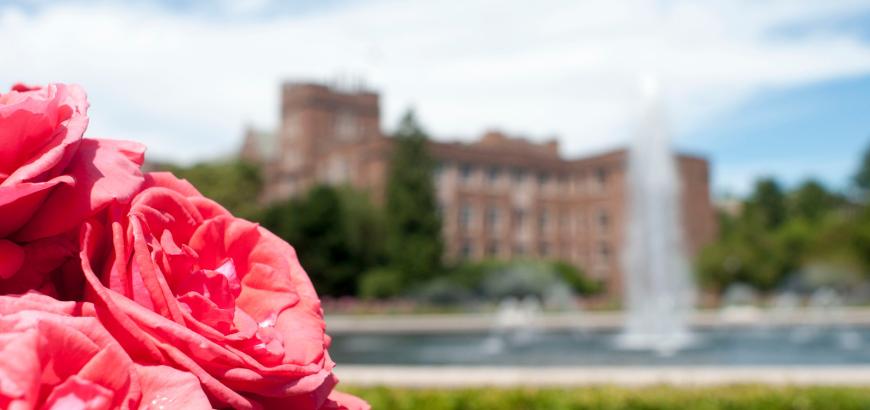
Program Overview
The Master of Fine Arts in Creative Writing is a two year program offering a degree in either Poetry or Prose, and is a part of the English Department's Creative Writing Program. Founded in 1947 by Theodore Roethke, the Creative Writing Program's tradition of transformative workshops continues with our current faculty: David Bosworth , David Crouse , Rae Paris , and Maya Sonenberg (Prose), and Linda Bierds , Andrew Feld , Richard Kenney, and Pimone Triplett (Poetry). They include among their many honors fellowships from the MacArthur Foundation, the Guggenheim Foundation, and the National Endowment for the Arts. The list of our alumni publications represents a significant chapter in the history of American literature. The program has been ranked among the top ten in the country.
Students participate in writing workshops in prose and poetry, and undertake coursework in literary periods and types, and critical theory. MFA candidates also present a Creative Manuscript (minimum 30 poems,100 pages of 5 short stories and/or personal essays, or 150 pages of a novel or book-length essay), a Critical Essay (20-30 pages, addressing the student's relationship to his or her reading based on the student's own writerly concerns and studies), and an oral presentation (a discussion with and/or questions from the candidate's thesis committee on the creative manuscript, critical essay, and/or the writing process and which may include a reading from the candidate's Creative Manuscript).
The program admits only ten to twelve students each year. The relatively small size of our program (20-25 students) allows for close associations to develop among students and faculty. The first year is devoted to participation in workshops and literary seminars, and the second year allows for concentrated work on a creative manuscript and critical essay under the supervision of one of our regular faculty.
Students are funded through Teaching Assistantships, Fellowships, and a long-standing relationship with the Amazon Literary Partnership.
Students also enjoy Seattle's lively literary and arts scene. Seattle is home to numerous reading series, the Seattle International Film Festival, and many highly-acclaimed theater companies. Surrounded by spectacular scenery, Seattle is minutes away from hiking, skiing, and boating.
Learn more about UW's Creative Writing Program .
Application Information
Application materials are due January 2 (or the first business day after January 1 st ). Initial offers of admission are usually made by mid-March.
- How to Apply
- Application Checklist
Funding Opportunities
We offer a funding package to all admitted MFA students for two academic years. Learn more about the funding package and other funding opportunities here: MFA Funding and Support .
MFA Degree Requirements & Program Guide
The MFA is designed to be completed within six full-time quarters (two academic years). MFA students can refer to the MFA Degree Requirements and MFA Program Guide .
Land Acknowledgement
The Creative Writing Program acknowledges that the University of Washington, like all of our businesses, institutions and our lives, exists on Indigenous land. Such land acknowledgements are necessary as we push for justice and liberation in institutions and a broader society that continues to live out the settler colonial legacies of land theft, genocide, and enslavement. This is Duwamish territory, and we are grateful to be here.
Departmental Commitment to Diversity, Equity and Justice
The UW English Department aims to help students become more incisive thinkers, effective communicators, and imaginative writers by acknowledging that language and its use are powerful and hold the potential to empower individuals and communities; to provide the means to engage in meaningful conversation and collaboration across differences and with those with whom we disagree; and to offer methods for exploring, understanding, problem solving, and responding to the many pressing collective issues we face in our world--skills that align with and support the University of Washington’s mission to educate “a diverse student body to become responsible global citizens and future leaders through a challenging learning environment informed by cutting-edge scholarship.”
As a department, we begin with the conviction that language and texts play crucial roles in the constitution of cultures and communities, past, present, and future. Our disciplinary commitments to the study of English (its history, multiplicity, and development; its literary and artistic uses; and its global role in shaping and changing cultures) require of us a willingness to engage openly and critically with questions of power and difference. As such, in our teaching, service, and scholarship we frequently initiate and encourage conversations about topics such as race and racism, immigration, gender, sexuality, class, indigeneity, and colonialisms. These topics are fundamental to the inquiry we pursue. We are proud of this fact, and we are committed to creating an environment in which our faculty and students can do so confidently and securely, knowing that they have the backing of the department.
Towards that aim, we value the inherent dignity and uniqueness of individuals and communities. We acknowledge that our university is located on the shared lands and waters of the Coast Salish peoples. We aspire to be a place where human rights are respected and where any of us can seek support. This includes people of all ethnicities, faiths, gender identities, national and indigenous origins, political views, and citizenship status; nontheists; LGBQTIA+; those with disabilities; veterans; and anyone who has been targeted, abused, or disenfranchised.
English Department Diversity Plan
The English department seeks to promote inclusion, diversity, and equity, especially racial equity, by recruiting, retaining, and supporting a diverse population of faculty, students, and staff in ways that counter ongoing legacies of systemic inequity and settler colonialism, and their organizing epistemologies.
The University of Washington acknowledges the Coast Salish people of this land, the land which touches the shared waters of all tribes and bands within the Suquamish, Tulalip, and Muckleshoot nations. The Department's promotion of diversity, equity, and inclusion values endeavors that build on this recognition as a means of transforming our research, pedagogy, and/or service.
Read more about the UW English Department's commitment to diversity, equity, and justice .
Contact an advisor
- For questions about the MFA program, please contact [email protected]
- Visit our FAQ page
- Meet our Graduate Staff
- Newsletter
Creative Writing and Literature
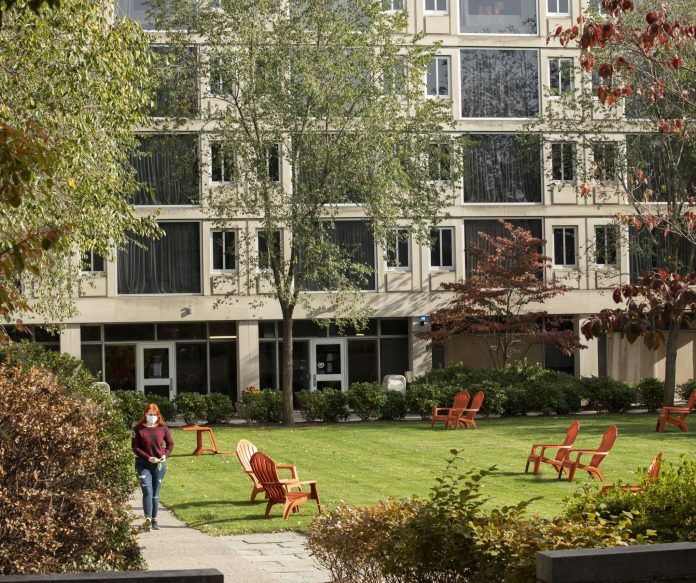
Students enrolled in the Master of Liberal Arts program in Creative Writing & Literature will develop skills in creative writing and literary analysis through literature courses and writing workshops in fiction, screenwriting, poetry, and nonfiction. Through online group courses and one-on-one tutorials, as well as a week on campus, students hone their craft and find their voice.
2024 Best Creative Writing Master's Degree Schools
Choosing a great creative writing school for your master's degree, quality overall is important, other factors we consider, more ways to rank creative writing schools.
When choosing the right school for you, it's important to arm yourself with all the facts you can. To that end, we've created a number of major-specific rankings , including this Best Creative Writing Master's Degree Schools list to help you make the college decision.
Best Schools for Master’s Students to Study Creative Writing in the United States
23 top schools for a master's in creative writing, rest of the top best creative writing master's degree schools, related programs, honorable mentions.
| Rank | College | Location |
|---|---|---|
| 26 | Philadelphia, PA | |
| 27 | Tempe, AZ | |
| 28 | Flagstaff, AZ | |
| 29 | Champaign, IL | |
| 30 | San Marcos, TX | |
| 24 | Saint Charles, MO | |
| 25 | Forest Grove, OR |
Creative Writing by Region
| Region |
|---|
Other Rankings
Best associate degrees in creative writing, best doctorate degrees in creative writing, best bachelor's degrees in creative writing, best overall in creative writing, rankings in majors related to creative writing, most popular related majors.
| Related Major | Annual Graduates |
|---|---|
| 338 | |
| 151 | |
| 119 | |
| 93 |
Notes and References
Popular reports, compare your school options.
Jump to navigation Skip to content
Search form
- P&W on Facebook
- P&W on Twitter
- P&W on Instagram
Find details about every creative writing competition—including poetry contests, short story competitions, essay contests, awards for novels, grants for translators, and more—that we’ve published in the Grants & Awards section of Poets & Writers Magazine during the past year. We carefully review the practices and policies of each contest before including it in the Writing Contests database, the most trusted resource for legitimate writing contests available anywhere.
Find a home for your poems, stories, essays, and reviews by researching the publications vetted by our editorial staff. In the Literary Magazines database you’ll find editorial policies, submission guidelines, contact information—everything you need to know before submitting your work to the publications that share your vision for your work.
Whether you’re pursuing the publication of your first book or your fifth, use the Small Presses database to research potential publishers, including submission guidelines, tips from the editors, contact information, and more.
Research more than one hundred agents who represent poets, fiction writers, and creative nonfiction writers, plus details about the kinds of books they’re interested in representing, their clients, and the best way to contact them.
Every week a new publishing professional shares advice, anecdotes, insights, and new ways of thinking about writing and the business of books.
Find publishers ready to read your work now with our Open Reading Periods page, a continually updated resource listing all the literary magazines and small presses currently open for submissions.
Since our founding in 1970, Poets & Writers has served as an information clearinghouse of all matters related to writing. While the range of inquiries has been broad, common themes have emerged over time. Our Top Topics for Writers addresses the most popular and pressing issues, including literary agents, copyright, MFA programs, and self-publishing.
Our series of subject-based handbooks (PDF format; $4.99 each) provide information and advice from authors, literary agents, editors, and publishers. Now available: The Poets & Writers Guide to Publicity and Promotion, The Poets & Writers Guide to the Book Deal, The Poets & Writers Guide to Literary Agents, The Poets & Writers Guide to MFA Programs, and The Poets & Writers Guide to Writing Contests.
Find a home for your work by consulting our searchable databases of writing contests, literary magazines, small presses, literary agents, and more.

Poets & Writers lists readings, workshops, and other literary events held in cities across the country. Whether you are an author on book tour or the curator of a reading series, the Literary Events Calendar can help you find your audience.
Get the Word Out is a new publicity incubator for debut fiction writers and poets.
Research newspapers, magazines, websites, and other publications that consistently publish book reviews using the Review Outlets database, which includes information about publishing schedules, submission guidelines, fees, and more.
Well over ten thousand poets and writers maintain listings in this essential resource for writers interested in connecting with their peers, as well as editors, agents, and reading series coordinators looking for authors. Apply today to join the growing community of writers who stay in touch and informed using the Poets & Writers Directory.
Let the world know about your work by posting your events on our literary events calendar, apply to be included in our directory of writers, and more.

Find a writers group to join or create your own with Poets & Writers Groups. Everything you need to connect, communicate, and collaborate with other poets and writers—all in one place.
Find information about more than two hundred full- and low-residency programs in creative writing in our MFA Programs database, which includes details about deadlines, funding, class size, core faculty, and more. Also included is information about more than fifty MA and PhD programs.
Whether you are looking to meet up with fellow writers, agents, and editors, or trying to find the perfect environment to fuel your writing practice, the Conferences & Residencies is the essential resource for information about well over three hundred writing conferences, writers residencies, and literary festivals around the world.
Discover historical sites, independent bookstores, literary archives, writing centers, and writers spaces in cities across the country using the Literary Places database—the best starting point for any literary journey, whether it’s for research or inspiration.
Search for jobs in education, publishing, the arts, and more within our free, frequently updated job listings for writers and poets.
Establish new connections and enjoy the company of your peers using our searchable databases of MFA programs and writers retreats, apply to be included in our directory of writers, and more.

- Register for Classes
Each year the Readings & Workshops program provides support to hundreds of writers participating in literary readings and conducting writing workshops. Learn more about this program, our special events, projects, and supporters, and how to contact us.
The Maureen Egen Writers Exchange Award introduces emerging writers to the New York City literary community, providing them with a network for professional advancement.
Find information about how Poets & Writers provides support to hundreds of writers participating in literary readings and conducting writing workshops.

Bring the literary world to your door—at half the newsstand price. Available in print and digital editions, Poets & Writers Magazine is a must-have for writers who are serious about their craft.
View the contents and read select essays, articles, interviews, and profiles from the current issue of the award-winning Poets & Writers Magazine .
Read essays, articles, interviews, profiles, and other select content from Poets & Writers Magazine as well as Online Exclusives.
View the covers and contents of every issue of Poets & Writers Magazine , from the current edition all the way back to the first black-and-white issue in 1987.
Every day the editors of Poets & Writers Magazine scan the headlines—publishing reports, literary dispatches, academic announcements, and more—for all the news that creative writers need to know.
In our weekly series of craft essays, some of the best and brightest minds in contemporary literature explore their craft in compact form, articulating their thoughts about creative obsessions and curiosities in a working notebook of lessons about the art of writing.
The Time Is Now offers weekly writing prompts in poetry, fiction, and creative nonfiction to help you stay committed to your writing practice throughout the year. Sign up to get The Time Is Now, as well as a weekly book recommendation for guidance and inspiration, delivered to your inbox.
Every week a new author shares books, art, music, writing prompts, films—anything and everything—that has inspired and shaped the creative process.
Listen to original audio recordings of authors featured in Poets & Writers Magazine . Browse the archive of more than 400 author readings.
Ads in Poets & Writers Magazine and on pw.org are the best ways to reach a readership of serious poets and literary prose writers. Our audience trusts our editorial content and looks to it, and to relevant advertising, for information and guidance.
Start, renew, or give a subscription to Poets & Writers Magazine ; change your address; check your account; pay your bill; report a missed issue; contact us.
Peruse paid listings of writing contests, conferences, workshops, editing services, calls for submissions, and more.
Poets & Writers is pleased to provide free subscriptions to Poets & Writers Magazine to award-winning young writers and to high school creative writing teachers for use in their classrooms.
Read select articles from the award-winning magazine and consult the most comprehensive listing of literary grants and awards, deadlines, and prizewinners available in print.

- Subscribe Now
MFA Programs Contact Form
Help us keep this database current. If you have updated information on one of the programs listed in the MFA database, let us know.
MFA Programs Database
- Help Keep This Database Current
Our MFA database includes essential information about low- and full-residency graduate creative writing programs in the United States and other English-speaking countries to help you decide where to apply.
Adelphi University
Poetry: Jan-Henry Gray, Maya Marshall Prose: Katherine Hill, René Steinke, Igor Webb
Albertus Magnus College
Poetry: Paul Robichaud Fiction: Sarah Harris Wallman Nonfiction: Eric Schoeck
Alma College
Poetry: Leslie Contreras Schwartz, Jim Daniels, Benjamin Garcia Fiction: Karen E. Bender, Shonda Buchanan, Dhonielle Clayton, S. Kirk Walsh Creative Nonfiction: Anna Clark, Matthew Gavin Frank, Donald Quist, Robert Vivian
American University
Poetry: Kyle Dargan, David Keplinger Fiction: Dolen Perkins-Valdez, Stephanie Grant, Patricia Park Nonfiction: Rachel Louise Snyder
Antioch University
Poetry: Victoria Chang Prose: Lisa Locascio
Arcadia University
Poetry: Genevieve Betts, Michelle Reale Fiction: Stephanie Feldman, Joshua Isard, Tracey Levine, Eric Smith Literature: Matthew Heitzman, Christopher Varlack, Elizabeth Vogel, Jo Ann Weiner
Poetry: Genevieve Betts, Michelle Reale Fiction: Stephanie Feldman, Joshua Isard, Tracey Levine, Eric Smith
Arizona State University
Poetry: Sally Ball, Natalie Diaz, Alberto Álvaro Ríos, Safiya Sinclair Fiction: Matt Bell, Jenny Irish, Tara Ison, Mitchell Jackson, T. M. McNally Creative Nonfiction: Sarah Viren
Ashland University
Poetry: Dexter Booth, Marcelo Hernandez Castillo, Adam Gellings, Tess Taylor, Vanessa Angélica Villareal Fiction: Kirstin Chen, Edan Lepucki, Sarah Monette, Nayomi Munaweera, Vi Khi Nao, Naomi J. Williams, Kyle Winkler Nonfiction: Cass Donish, Kate Hopper, Lauren Markham, Thomas Mira y Lopez, Lisa Nikolidakis, Terese Mailhot
Augsburg University
Poetry: Michael Kleber-Diggs Fiction: Stephan Eirik Clark, Lindsay Starck Nonfiction: Anika Fajardo Playwriting: Carson Kreitzer, TyLie Shider, Sarah Myers Screenwriting: Stephan Eirik Clark, Andy Froemke
Ball State University
Poetry: Katy Didden, Mark Neely Fiction: Cathy Day, Sean Lovelace Nonfiction: Jill Christman, Silas Hansen Screenwriting: Rani Deighe Crowe, Matt Mullins
Bard College
Jess Arndt, Shiv Kotecha, Mirene Arsanios, Hannah Black, Trisha Low, Christoper Perez, Julian Talamantez Brolaski, Simone White
Bath Spa University
Poetry: Lucy English, Tim Liardet, John Strachan, Samantha Walton, Gerard Woodward Fiction: Gavin James Bower, Celia Brayfield, Alexia Casale, Anne-Marie Crowhurst, Lucy English, Nathan Filer, Aminatta Forna, Samantha Harvey, Philip Hensher, Steve Hollyman, Emma Hooper, Claire Kendal, Natasha Pulley, Kate Pullinger, C.J. Skuse, Gerard Woodward Nonfiction: Celia Brayfield, Lily Dunn, Richard Kerridge Scriptwriting: Robin Mukherjee
Poetry: Lucy English, Tim Liardet, Gerard Woodward Fiction: Gavin James Bower, Celia Brayfield, Anne-Marie Crowhurst, Nathan Filer, Aminatta Forna, Samantha Harvey, Philip Hensher, Claire Kendal, Natasha Pulley, Kate Pullinger, Gerard Woodward Nonfiction: Lily Dunn, Richard Kerridge
Bay Path University
Mel Allen, Leanna James Blackwell, Jennifer Baker, Melanie Brooks, María Luisa Arroyo Cruzado, Shahnaz Habib, Susan Ito, Karol Jackowski, Yi Shun Lai, Anna Mantzaris, Meredith O’Brien, Mick Powell, Suzanne Strempek Shea, Tommy Shea, Kate Whouley
Bennington Writing Seminars at Bennington College
Poetry: Jennifer Chang, Michael Dumanis, Randall Mann, Craig Morgan Teicher, Mark Wunderlich Fiction: Peter Cameron, Jai Chakrabarti, Stacey D’Erasmo, Monica Ferrell, Rebecca Makkai, Stuart Nadler, Téa Obreht, Moriel Rothman-Zecher, Katy Simpson Smith, Taymour Soomro Nonfiction: Garrard Conley, Sabrina Orah Mark, Spencer Reece, Lance Richardson, Shawna Kay Rodenberg, Hugh Ryan, Greg Wrenn
Binghamton University
Poetry: Tina Chang, Joseph Weil Fiction: Amir Ahmdi Arian, Thomas Glave, Leslie L. Heywood, Claire Luchette, Liz Rosenberg, Jaimee Wriston-Colbert, Alexi Zentner Nonfiction: Amir Ahmdi Arian, Leslie L. Heywood
Bluegrass Writers Studio at Eastern Kentucky University
Poetry: Julie Hensley, Young Smith Fiction: Julie Hensley, Robert Dean Johnson Nonfiction: Robert Dean Johnson, Evan J. Massey Playwriting: Young Smith
Boise State University
Poetry: Martin Corless-Smith, Sara Nicholson, Taryn Schwilling Fiction: Mitch Wieland (Director), Anna Caritj Creative Nonfiction: Chris Violet Eaton, Clyde Moneyhun
Boston University
Poetry: Andrea Cohen, Karl Kirchwey, Robert Pinsky Fiction: Leslie Epstein, Jennifer Haigh, Ha Jin
Boston University—MFA in Literary Translation
Odile Cazenave, Yuri Corrigan, Margaret Litvin, Christopher Maurer, Roberta Micaleff, Robert Pinsky (advising), Stephen Scully, Sassan Tabatabai, J. Keith Vincent, William Waters, Dennis Wuerthner, Cathy Yeh, Anna Zielinska-Elliott
Bowling Green State University
Poetry: Abigail Cloud, Amorak Huey, Sharona Muir, F. Dan Rzicznek, Larissa Szporluk, Jessica Zinz-Cheresnick Fiction: Joe Celizic, Lawrence Coates, Reema Rajbanshi, Michael Schulz
Brigham Young University
Poetry: Kimberly Johnson, Lance Larsen, Michael Lavers, John Talbot Fiction: Chris Crowe, Ann Dee Ellis, Spencer Hyde, Stephen Tuttle Nonfiction: Joey Franklin, Patrick Madden
Brooklyn College
Poetry: Julie Agoos, Ben Lerner Fiction: Joshua Henkin, Madeleine Thien Playwriting: Dennis A. Allen II, Elana Greenfield
FALL 2024 REGISTRATION IS NOW OPEN
Ma in writing.
You bring the passion for storytelling, we’ll help you develop your craft, tap into your creativity, and increase your network. Our goal is that you will leave our program ready to write, publish, and edit at the highest levels possible.
MA in Writing Program Overview
The Johns Hopkins MA in Writing program reflects our university’s international reputation for academic rigor and creative innovation. Rooted in craft and led by working writers, our high-quality program is both challenging and supportive: We’re here to offer clear, straightforward, thoughtful feedback while creating a culture that encourages risk-taking.
At JHU, you will not only boost your writing, revision, and editing skills, but also learn how to read like a writer, to give and receive feedback, to find publishing opportunities, and to live the writing life.
Explore Many Genres and Styles
We offer areas of concentration in nonfiction or fiction writing, each offering its own core courses and required electives that will explore craft elements like form, voice, structure, and style.
- Nonfiction: pursue long-form literary journalism, personal essays, and memoir
- Fiction: focus on short stories, novellas, and novels in a variety of genres
In addition to classes in your selected concentration, you’ll get to dabble in other genres like poetry, drama, playwriting, and screenwriting. Flesh out your schedule with classes from across genres, eras, themes, craft elements, and even from our science writing graduate programs.
Live the Writing Life: Summer Residency
The optional residency courses bring together our community for a week of sessions, workshops, readings, outings, receptions, and, of course, personal writing time. After all, you’re likely to be inspired by your surroundings!
Residency locations vary from year to year. We’ve been to Bar Harbor, Maine; Dublin, Ireland; and Shenandoah National Park in Virginia. Sometimes our writing residencies are integrated with the JHU science writing master’s program, giving you a chance to connect with even more writers and faculty members.
Complete a Manuscript, Build Your Portfolio
You will leave JHU with a solid, publishable portfolio. You’ll bring together the best of you for your thesis project. This could be part of a novel or memoir, or a collection of essays or short stories. You will work under the guidance of a faculty mentor to revise your project, while also taking a capstone workshop where you’ll discuss the writing life and practice and conduct public readings.
Learn on Your Terms
The MA in Writing program is one of the most flexible at JHU. You can complete your degree online in a dynamic and interactive learning environment, with the option to incorporate residency experiences into your studies.
What It’s Like to Study Writing at AAP
Student Insights
MA in Writing students share their perspectives about the program:
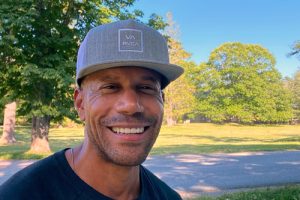
Torrence Boone '22
“I had written a novel and struggled, but since coming to the program I feel empowered, with a new set of tools and approaches to writing and work. ”
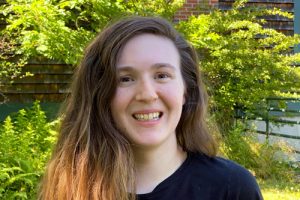
Elissa Collins '23
“I knew I wanted to go back to grad school, and with Johns Hopkins I knew you could work full time and complete the program. So I was very excited about that. ”
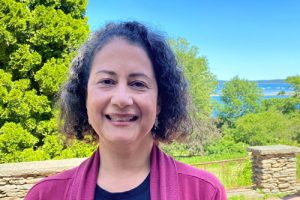
Anne Haddad '24
“With its thought-provoking methods and structure, this program has empowered me to feel confident to return to writing the stories I’ve always wanted to write.“
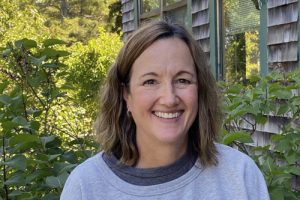
Catherine Smart '24
“Every professor is accessible and candid and wants to see you develop. I have never had that in a program before, which is why I would stay here above any other program. ”
Why to Pursue an MA in Writing at Hopkins
Surround yourself with other creative writers: Your classmates and faculty members all have a story to tell.
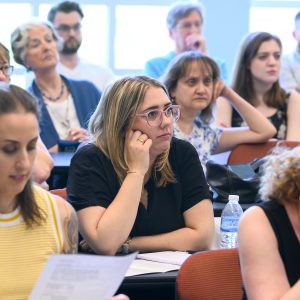
Study With Prolific Writers
Our faculty has been published in Education Week, The New York Review of Books, Time, and many literary journals and major newspapers. Research interests include pop music, Icelandic literature, digital media, creative writing, and multilingual writers.
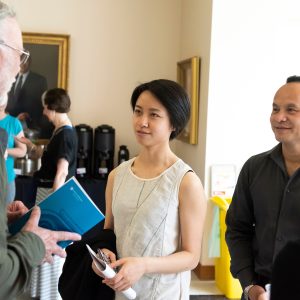
Grow Your Writing Community and Network
Meet emerging and established writers from all professional backgrounds. Join a successful network of alumni with work in esteemed literary journals, major magazines and newspapers, and on the shelf at your local bookstore.

Write on Location: Travel Opportunities
Our exciting summer residency option rotates locations. You could write near our campus in D.C. or Baltimore, on the rocky shores of the Atlantic in Bar Harbor, Maine, near Acadia National Park, or in the mountains near Shenandoah National Park, or even Dublin, Ireland.

Customize Your Studies Based on Writing Goals
Choose from a variety of workshops and electives, such as Children's Book Writing, Screenwriting, Sentence Power: From Craft to Art, The Essence of Place, Writing the Other, Travel Writing, Completing the Novel, Memoir and Personal Essay – plus a variety of fiction and nonfiction workshops.
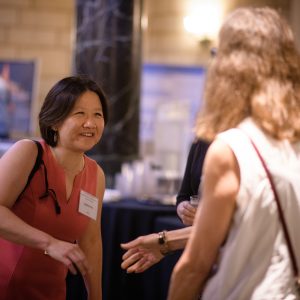
Connect With Us
We love to share updates about our students and faculty, as well as links to new publications.
Writing News
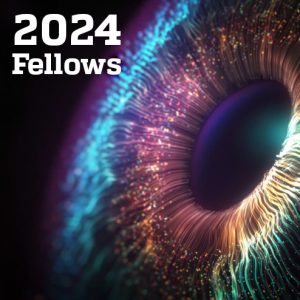
Take the Next Step
Study creative writing online or on campus at Johns Hopkins University, among a community of writers dedicated to their craft.
Contact Us for More Information
Advanced academic programs admissions, audience menu.

Universal Navigation
Universal navigation2.
- PhD Program
- PhD Program Placement
- Collaborative Specializations
Search form

- MA Programs
- MA in English in the Field of Creative Writing
The Department of English at the University of Toronto launched the MA Program in English in the Field of Creative Writing (MA CRW) in 2004-05. The program draws both on the expertise of faculty at the University of Toronto and on the extraordinary vitality of Toronto’s writing community. Internationally acclaimed writers, a multiplicity of cultural traditions, and an energetic publishing industry provide the environment for nurturing new talent. Students have at their disposal the academic and creative resources of the English Department, including its strengths in historical research and traditional scholarship, numerous interdisciplinary collaborations, its acknowledged expertise in world literature, and a faculty engaged in new theoretical studies in culture, race, and gender. Students also have access to one of the world’s great library systems, including the manuscript collections at the Fisher Rare Book library. While the program is designed to prepare participants for careers as professional writers, it will also qualify those wishing to pursue further graduate studies.
Admission Requirements
The MA in English in the Field of Creative Writing requires students to attend graduate-level English courses. The degree can lead to a PhD in English. Therefore, students must have at least seven full-year undergraduate courses in English or the equivalent in half-year courses (i.e., fourteen), or any combination of full- and half-year courses that add up to the equivalent of seven full-year courses . It is not necessary to have an English major, as long as you have the seven undergraduate English courses. Students who do not meet this requirement cannot be admitted into the program.
A B+ average (GPA of 3.3) is the minimum requirement for entry into the program. Once this is met, the primary basis for the selection of candidates is the quality of the portfolio submission. It is not expected that students will have publication credits. Applicants do not need to provide GRE results.
Applications must be submitted online and are considered complete only when the following documentation has been received by the Department of English:
- Two academic letters of reference submitted online by academic referees/recommenders, each addressing your performance in university English and/or Creative Writing coursework. At least one letter must discuss your performance in English coursework. Do not use editors, publishers, employers, or fellow writers as referees.
- A statement of purpose, submitted electronically
- Digital Transcripts from each post-secondary institution attended (in pdf format), uploaded to the application, and UPON REQUEST ONLY official paper transcripts mailed directly to the Department. For more detailed information and instructions regarding submitting transcripts, please visit "Checklist for a Complete GradAPP Package" in the section entitled Academic Transcripts on our APPLICATION INFORMATION page.
- Do not submit academic essays.
- To view the application details and requirements, please visit the SGS website here SGS Admissions & SGS Application Requirements and the application instructions on the SGS How to apply page. Additionally, here is the link to the School of Graduate Studies pages for Future Students .
Program Requirements
The MA program in English in the Field of Creative Writing usually requires 18-24 months to complete. Applicants must have an overall average of B+ or better and evidence of first-class work in English for admission to the program. The program requires the completion of two FCE’s (full course equivalents) in English; ENG6950Y Writing Workshop; and a supervised Writing Project (the equivalent of a thesis) completed under the direction of a mentor.
All candidates must complete the Writing Workshop in the first year of their program. Some sessions may feature on-campus visits from editors, publishers, professional archivists, researchers, and agents so that students can learn the pragmatics of the publishing industry. In their second year, students undertake a book-length Writing Project in a genre of choice – poetry, drama, fiction, or creative non-fiction. Each student is assigned a faculty member or adjunct faculty member with whom to consult on a regular basis about the Project. All advisors are published writers.
Writing Workshop
ENG6950YY: All candidates for the MA in English in the Field of Creative Writing must complete this workshop in the first year of their program. Students will also submit creative work in order to receive feedback from the instructor and fellow students, and this will allow them to develop their portfolios.
Writing Project
In the second year of the program, students will undertake a book-length Writing Project in a genre of choice (poetry, drama, fiction, or creative non-fiction). Each student will be assigned a faculty member or adjunct faculty member with whom to consult on a regular basis about the Project. All mentors will be published writers. The completed Project should normally be submitted before the beginning of April of the second year. The Department will then arrange an oral defense, to be chaired by the Director of the MA in English in the Field of Creative Writing. The Writing Project can be designated as Pass, Fail, or Distinction.
Student Funding
Students accepted into the MA Program in English in the Field of Creative Writing are eligible for teaching assistantships, including a number in Creative Writing courses. All incoming students are considered for incoming scholarships.
Students are strongly encouraged to apply for external funding from the Social Sciences and Humanities Research Council of Canada, and for the Ontario Graduate Scholarship. For more information visit the Department of English Finances & Awards webpage.
Faculty, Mentors, and Alumni
- MA CRW Program Adjunct Faculty (Mentor) Biographies
- MA CRW Faculty Biographies
- MA CRW Alumni Biographies
How many students are admitted each year?
We admit seven students each year.
I do not have 7 full-year (or equivalent) undergraduate courses in English. Can I still apply?
Because the program is an MA in English, students must have a strong background in English literature. Students who do not have sufficient undergraduate training may wish to take additional courses in English in order to qualify for admission.
My average is less than a B+. Can I still apply?
The academic requirements for admission to the MA in English in the Field of Creative Writing are very strict. The B+ minimum must be met or a student’s portfolio will not be considered. Students who do not have an adequate GPA may wish to take additional courses in order to improve their academic standing and qualify for admission.
I have taken courses in literature in a language other than English. Can I apply?
Unless the texts were studied in English translation, courses in literature in a language other than English do not qualify students for admission to the program.
How should I choose what to submit?
Choose your best writing.
Can I apply to enrol in January?
There is only one entry point for students in the MA in English in the Field of Creative Writing, which is September. Students may not begin the program in January.
Can I enrol in the MA in English in the Field of Creative Writing part-time?
Students must enrol full-time.
How much Financial Support can I expect?
Currently we are able to offer students in the Creative Writing program a TAship each year (number of hours TBA at the start of the program), to a maximum of two years. Successful applicants for the SSHRC CGS-M award can expect $17,500. OGS award holders can expect up to $15,000. All incoming students are considered for incoming scholarships.
For more information please contact us by e-mail, phone or by mail.
[email protected] Director, MA in English in the Field of Creative Writing Department of English 170 St. George Street University of Toronto Toronto, Ontario Canada M5R 2M8
Social Media Facebook Twitter Instagram
- General Information
- Current Students
- MA in English
- Combined JD/MA
- Request new password


Online Students
For All Online Programs
International Students
On Campus, need or have Visa
Campus Students
For All Campus Programs
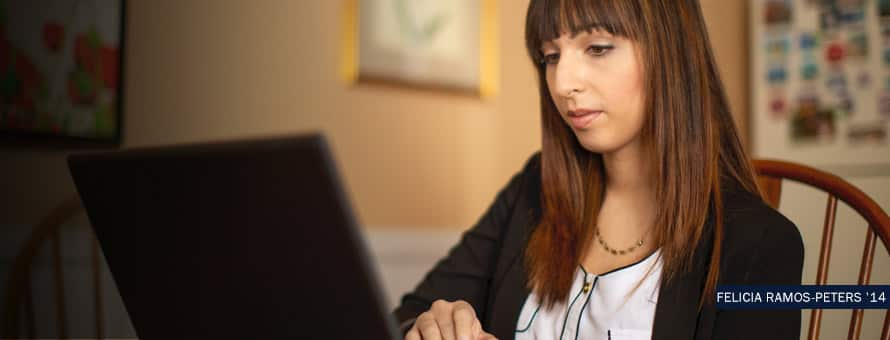
Online MFA in Creative Writing Master of Fine Arts
Earn an MFA in Creative Writing Online
- $637/credit (48 credits total)
- Transfer up to 12 graduate credits
- 100% online – no residency required
- Four fiction genres to choose from
- Career-focused certificate included
- No application fee or GRE/GMAT scores required
Online MFA in Creative Writing Program Overview
Share your story with the world and let the power of storytelling take your career to new heights with an online Master of Fine Arts (MFA) in Creative Writing . As one of the only programs available that encourages a focus on genre fiction, our online MFA lets you hone your craft in an area specific to your strengths and interests. You'll also learn about the business side of creative writing, preparing you to market your work in the real world.
While most MFA programs require a residency, Southern New Hampshire University's online MFA in Creative Writing can be completed entirely online, with no travel necessary.
“Traditional MFA programs, whether full-time or low residency, are out of reach for many writers,” said Paul Witcover , associate dean of creative writing. “The SNHU online MFA was designed to make the MFA experience accessible to all fiction writers, opening the door to diverse voices excluded for too long from the literary conversation. Our program is dedicated to giving writers the tools to succeed on the page and beyond it.”
Graduates leave the program with a completed and revised novel in one of our four offered genres: Contemporary, Young Adult, Romance and Speculative. With the included certificates in either online teaching of writing or professional writing , you'll have the skills to support your writing career, no matter where it takes you.
.st0{fill:#21386D;} What You'll Learn
- The business and technical sides of professional writing
- How to navigate the publishing ecosystem, identify agents and editors, and market your work to appeal to decision-makers
- Using social media to gain a following and build your brand
- How to teach writing in a classroom setting
.cls-1 { fill: #21386d; } How You'll Learn
At SNHU, you'll get support from day 1 to graduation and beyond. And with no set class times, 24/7 access to the online classroom and helpful learning resources along the way, you'll have everything you need to reach your goals.

The Value of an Online MFA
Emily Jones ’20 embraced a transformational experience through the online MFA in Creative Writing program, which supported her in taking her writing career to the next level. “I can now say, without even a hint of imposter syndrome, that I am a writer,” said Jones. “And that is because of Southern New Hampshire University.”
Career Outlook
According to the U.S. Bureau of Labor Statistics, writers and authors made a median annual salary of $69,510 in 2021, while editors made $63,350. 1
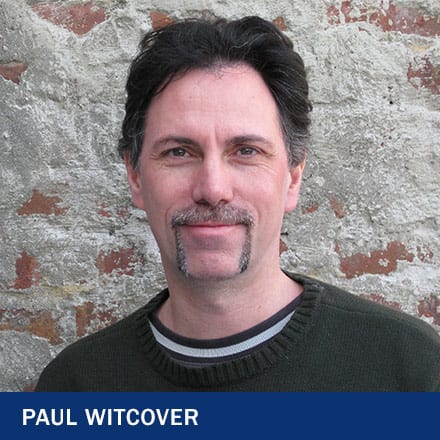
“Our mission is to give students a degree and associated practical skills they can use to forge successful pathways in academia, business, or by blazing their own career trail,” said Paul Witcover , associate dean of creative writing.
Earning one of the included certificates in online teaching of writing or professional writing will also be an invaluable addition to your resume for part-time, full-time and freelance jobs in a variety of fields, including:
- Higher education. Instruct writing courses in higher education settings. In 2021, postsecondary teachers made a median annual wage of $79,640, and you can expect to see a 12% growth in available positions through 2031, according to the BLS. 1
- Advertising. Use your storytelling skills in a way that influences consumer action. As a copywriter, you could find yourself doing any number of writing projects from crafting emails and ads to writing entire commercials.
- Marketing. If you're more comfortable with long-form prose, many businesses have invested in content writers who create quality content such as blog posts, ebooks and podcasts to attract and retain customers.
- Entertainment. Good at building suspense or setting up punchlines? From movies and plays to comedy and podcasts, being a good storyteller and writer is important to finding success in the entertainment industry.
- History. Every person's life has a plot, but it takes writers like you to tell their stories in a compelling way. Help readers relive the experiences of historic figures and pop culture icons as a biographer.
Higher Education
Instruct writing courses in higher education at a college or university, either in-person or online.
Advertising
Influence consumer action through copywriting, from print ads to digital advertising and broadcast commercials.
Create written content such as blog posts, ebooks and podcasts to attract and retain customers.
Entertainment
From movies and plays to comedy and podcasts, writers often find success in the entertainment industry.
The U.S. Bureau of Labor Statistics (BLS) predicts favorable job growth in postsecondary education. And while statistics are not available for all job settings mentioned above, the BLS reports the following:
.cls-1 { fill: #21386d; } Job Growth
The BLS predicts an 8% growth in available postsecondary teaching positions through 2032. 1
.cls-1 { fill: #21386d; } Potential Salary
Writers and authors made a median annual salary of $73,150 in 2022, while editors made $73,080 and postsecondary teachers made $80,840. 1
Understanding the Numbers When reviewing job growth and salary information, it’s important to remember that actual numbers can vary due to many different factors — like years of experience in the role, industry of employment, geographic location, worker skill and economic conditions. Cited projections do not guarantee actual salary or job growth.
Start Your Journey Toward an Online MFA in Creative Writing
If you're looking to earn your Master of Fine Arts online, you've found the right program. Even though there are no residency requirements, you'll still interact frequently with other students and faculty members in asynchronous discussions, critique workshops and within our online writer’s community, where students come together to share industry news, extend writing tips and develop critique partnerships.
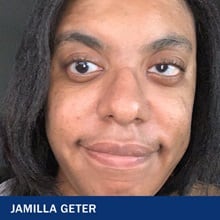
"I liked MFA-514 (Advanced Studies in Genre Literature) best," said student Jamilla Geter . "It was a great look into the different genres. It really helped me narrow down what genre I wanted to write in."
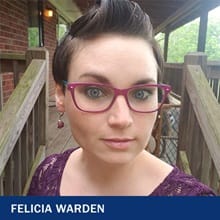
"Though it was not writing exactly, its connection to it – especially in our digital world – was made clear almost immediately," she said. "Writing is not just providing content of value to your readers, but also creating avenues of access so those readers can find your content. This course helped me to understand that and to learn how I can create those avenues."
Besides allowing you to focus on your own creative interests, part of our 48-credit online MFA curriculum requires you to choose from 2 certificate offerings designed to round out your education and better prepare you for a multitude of writing-related careers.
The first choice is a Graduate Certificate in Online Teaching of Writing , which is tailored to those who see themselves teaching in an online classroom setting as a supplement to their writing careers. Students practice approaches to editing and coaching, learning how to establish a virtual instructor presence and cultivate methods for supporting and engaging students within online writing communities.
Learn more about the online teaching of writing graduate certificate .
Students can also choose the Graduate Certificate in Professional Writing , which highlights the technical and business opportunities available to writers. Students will develop a range of skills, such as copywriting, social media, marketing principles and/or content generation, learning many of the freelancing skills integral to today’s project-driven economy.
Learn more about the professional writing graduate certificate .
All of our courses are taught by accomplished authors and industry professionals who know both the craft and business of creative writing. They will work closely with you to develop both your creative and professional skill set.
"All instructors within my program were extremely knowledgeable and helpful," Warden said. "I learned a lot about the different career paths my instructors chose. ... The course instruction, along with their anecdotal experiences, helped in offering knowledge in different areas of our field.
MFA Program Thesis
The thesis for the Online MFA in Creative Writing is required to be a novel of at least 50,000 words in one of the four genres the program offers: Contemporary, Young Adult, Romance, and Speculative.
Every Southern New Hampshire University online MFA student who graduates from the program will do so with a revised novel manuscript in their chosen genre, which is completed in a three-course thesis series. Throughout your tenure in the program, you can either work on a singular idea that you will develop during the three thesis courses, or you can begin a new project for your thesis. You can also combine elements of the four genres offered in the program for your thesis. For example, your thesis might be a YA Speculative Fiction novel.
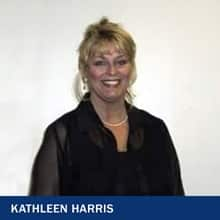
"My three thesis classes for the MFA degree were the most helpful," said Kathleen Harris '21 . "I was actually writing a book as my thesis, so it was both enjoyable and advantageous for the degree. And it was the end of a very long milestone of accomplishments."
| View Full Curriculum in the Catalog |
|---|
| Courses May Include | ||
|---|---|---|
| MFA in Creative Writing Online | ||
| MFA 505 | Introduction to the Online MFA | Explore a unique culture and approach to fiction writing at SNHU that embraces practicality, diversity and community. Understand the history and major categories of genre fiction, including the role genre plays for readers, writers, and publishers. Develop techniques for effective workshopping. Discover habits and behaviors that support the creative process and forge ties with a peer and faculty community that support a rewarding writing career. |
| MFA 507 | Advanced Studies in Literature | Study classic and contemporary literature by exploring published authors' usage of creative writing craft elements. Analyze the applications of these storytelling craft elements in published literature, and identify why the literature, as a cohesive whole, is successful. Develop individual approaches to the "writer's toolkit," by employing the craft elements of storytelling into personal works for advancing a career as a creative writer. |
| MFA 509 | Storytelling | Analyze and practice fundamentals of storytelling, including narrative arc, plot, and character development. Deconstruct popular stories in literature and film to understand characteristics of beginnings that hook, tension-building middles and satisfying endings. Refine and polish an original premise through workshop and reflection. Apply techniques to your own stories. |
| MFA 514 | Advanced Studies in Genre Literature | Cultivate an appreciation for several literary genres through the study of various important works, authors, key historical developments, characteristic tropes, and conventions. Prepare for upcoming cross-genre creative writing workshops. Analyze one genre novel for how it fits within the literary landscape in preparation for genre concentration selection. Research market trends to gain a practical grasp of how a genre's history continues to influence popular books today. |
| MFA 600 | The Publishing Ecosystem | Follow the journey of publication from initial manuscript submission to a finished book in a reader's hands. Investigate business models and key roles in the publishing world, learn conventions of submission, and identify networking opportunities. Research the critical organizations, communities, and industry publications and resources unique to a chosen genre. |
| MFA 602 | The Business of Writing | Explore the many methods and strategies that professional writers employ to leverage their creative talents into financially sustaining work. Investigate the many types of writing opportunities available beyond book publishing, and learn how to start and grow a successful freelance business. Research freelance opportunities, learn how to manage a sole proprietorship, and find resources about various industry tools and conventions. |
| MFA 604 | Finding and Reaching an Audience | Develop strategies to find a readership and build an audience. Investigate approaches and tools for building a writer's platform and increasing visibility in a chosen market. Create a customized, multi-faceted plan to cultivate and engage new fans. |
| MFA 606 | Copy and Content Writing | Target a specific readership by applying copywriting and content writing skills. Learn how to write effectively and persuasively for marketing purposes, particularly when crafting book descriptions or book marketing materials, social media posts, email newsletters, and other types of copy. Focus on producing effective headlines and content for search engine optimization purposes. |
| MFA 608 | Editing and Coaching | Define and practice the types of editing and examine their use at different stages of revision. Become familiar with methods of revision and editing in order to apply them to one's own writing and that of their clients. Explore the role of the editor-as-coach, and practice a coaching approach to editing. Learn strategies for building an editing and coaching clientele. |
| MFA 700 | Thesis Writing I | Begin to develop the novel that serves as a thesis for the MFA program. Build a detailed plan that documents the writing process and prepares next steps to be taken toward novel completion. Engage in constructive workshopping, and reflect both on one's place within a literary community and on how one's work fits within the publishing ecosystem. Cultivate self-confidence and practical outreach skills by preparing and presenting an effective "elevator" pitch of a novel. |
| MFA 701 | Thesis Writing II | Continue writing a publication-ready novel following a detailed writing plan toward the completion of a full draft. Work to hone creative craft and critical abilities using constructive workshopping, engaging with peers in productive feedback processes. Develop practical strategies for improving work through revision. |
| MFA 702 | Thesis Writing III (Capstone) | Revise, finalize, and submit a publication-ready novel for the capstone in the MFA program. Assemble a professional portfolio including a query letter and synopsis, accumulated evidence of writing work, and a personally branded website. Reflect critically on one's place within a writing genre, examine influential books and writers, and envision a career in writing in the context of literary citizenship. Demonstrate mastery of program outcomes through a satisfactory/unsatisfactory grade evaluation. |
| Total Credits: 48 | ||
Minimum Hardware Requirements Component Type PC (Windows OS) Apple (Mac OS) Operating System Currently supported operating system from Microsoft. Currently supported operating system from Apple. Memory (RAM) 8GB or higher 8GB or higher Hard Drive 100GB or higher 100GB or higher Antivirus Software Required forcampus students. Strongly recommended for online students. Required forcampus students. Strongly recommended for online students. SNHU Purchase Programs Visit Dell Visit Apple Internet/ Bandwidth 5 Mbps Download, 1 Mbps Upload and less than 100ms Latency 5 Mbps Download, 1 Mbps Upload and less than 100ms Latency Notes: Laptop or desktop? Whichever you choose depends on your personal preference and work style, though laptops tend to offer more flexibility. Note: Chromebooks (Chrome OS) and iPads (iOS) do not meet the minimum requirements for coursework at SNHU. These offer limited functionality and do not work with some course technologies. They are not acceptable as the only device you use for coursework. While these devices are convenient and may be used for some course functions, they cannot be your primary device. SNHU does, however, have an affordable laptop option that it recommends: Dell Latitude 3301 with Windows 10. Office 365 Pro Plus is available free of charge to all SNHU students and faculty. The Office suite will remain free while you are a student at SNHU. Upon graduation you may convert to a paid subscription if you wish. Terms subject to change at Microsoft's discretion. Review system requirements for Microsoft 365 plans for business, education and government. Antivirus software: Check with your ISP as they may offer antivirus software free of charge to subscribers. if (typeof accordionGroup === "undefined") { window.accordionGroup = new accordion(); } accordionGroup.init(document.getElementById('f756dce5bd874c61855f6f6e92d88470')); University Accreditation

Tuition & Fees
Tuition rates for SNHU's online degree programs are among the lowest in the nation. We offer a 25% tuition discount for U.S. service members, both full and part time, and the spouses of those on active duty.
| Online Graduate Programs | Per Course | Per Credit Hour | Annual Cost for 15 credits |
|---|---|---|---|
| Degree/Certificates | $1,911 | $637 | $9,555 |
| Degree/Certificates (U.S. service members, both full and part time, and the spouses of those on active duty)* | $1,410 | $470 | $7,050 |
Tuition rates are subject to change and are reviewed annually. *Note: students receiving this rate are not eligible for additional discounts.
Additional Costs: Course Materials ($ varies by course). Foundational courses may be required based on your undergraduate course history, which may result in additional cost.
Frequently Asked Questions

Academic Spotlight: Liberal Arts Associate Dean Paul Witcover

6 Ways to Improve Your Communication Skills at Work

Is a Communication Degree Worth It?
Related programs.

M.F.A. in Creative Writing
Get an m.f.a. in creative writing.
Our creative writing M.F.A. allows students to focus on creative writing in a specific genre while also studying a broad and diverse range of literatures in English. This degree is not a studio degree. It offers students preparation for the following areas:
- Creative publication
- Expert teaching in creative writing and literature
- Leadership in communication for business, education, and arts organizations
- Advanced studies in literature and creative writing in a doctoral program.
Admission to our creative writing program is extremely competitive, with up to 20 new students across the two genres selected each year from the hundreds of applications received from around the world. The curriculum for M.F.A. students emphasizes creative writing and literary study.
The city of Houston offers a vibrant, multi-cultural backdrop for studying creative writing at the University of Houston. With a dynamic visual and performing arts scene, the Houston metropolitan area supplies a wealth of aesthetic materials.
Overview of Admissions Requirements
Minimum requirements for admission.
- B.A. degree
- 3.0 GPA in undergraduate studies
Application Deadline
Applications to the M.F.A. in Creative Writing program are due January 15.
For more admissions information, visit the How to Apply web page for our M.F.A. in Creative Writing.
History of the Creative Writing Program
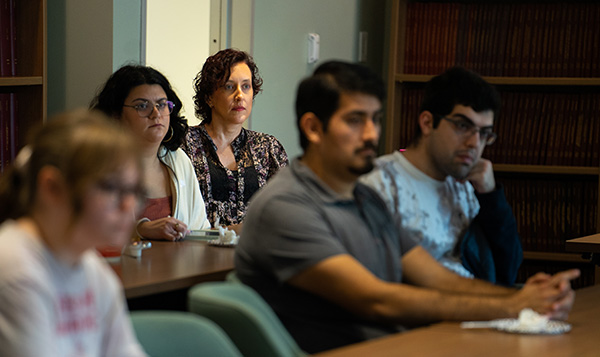
Over the years many more internationally acclaimed writers have made the Program their home, including Mary Gaitskill, Richard Howard, Howard Moss, Linda Gregg, Adam Zagajewski, Daniel Stern, David Wojahn, Edward Hirsch, Alan Hollinghurst, Mark Strand, David Wagoner, Philip Levine, Charles Wright, Claudia Rankine, Kimiko Hahn, Mark Doty and Ruben Martinez.
Current faculty includes Erin Belieu, Robert Boswell, Audrey Colombe, Chitra Divakaruni, Nick Flynn, francine j. harris, Antonya Nelson, Alex Parsons, Kevin Prufer, Brenda Peynado, Martha Serpas, Roberto Tejada, and Peter Turchi.
Quick Links

Program Breakdown & Degree Requirements

Financial Aid

How to Apply

Inprint Student Writing Awards

Department of English
College of humanities, main navigation, creative writing, about the creative writing program.
Our Creative Writing Program is vibrant and highly successful. We are committed on all levels to developing well-rounded practitioners with substantial backgrounds in fiction, nonfiction, poetry, digital writing practices, hybrid and other experimental forms, book arts, and literary history and theory. Our program hosts a dynamic reading series and opportunities for interaction with visiting authors and scholars.
Undergraduates are introduced to a variety of writing lives through small workshops and intensive focus on their work, while studying the larger ecology of contemporary publishing. In our graduate program, home to Quarterly West and Western Humanities Review , students intensify and deepen their investigation. We offer a modular MFA in Environmental Humanities, the American West, or Book Arts. Many graduates in our PhD Program, which Atlantic Monthly rated as among the top five in the country, publish widely in literary journals, place books before or soon after completing the program, win national and international awards, oversee and participate in a graduate reading series, and go on to find good academic positions.
Our renowned and aesthetically diverse faculty, whose honors include Guggenheim and NEA fellowships, Pushcart Prizes, the Berlin Prize, and other prestigious recognition of their creative work, scholarship, and teaching, includes Katharine Coles, Lindsey Drager, Michael Mejia, Jacqueline Osherow, Paisley Rekdal, and Rone Shavers. Additionally, each year the Creative Writing Program brings in a nationally recognized ESRR Distinguished Visiting Writer to teach graduate and undergraduate workshops and seminars for a half semester or longer.
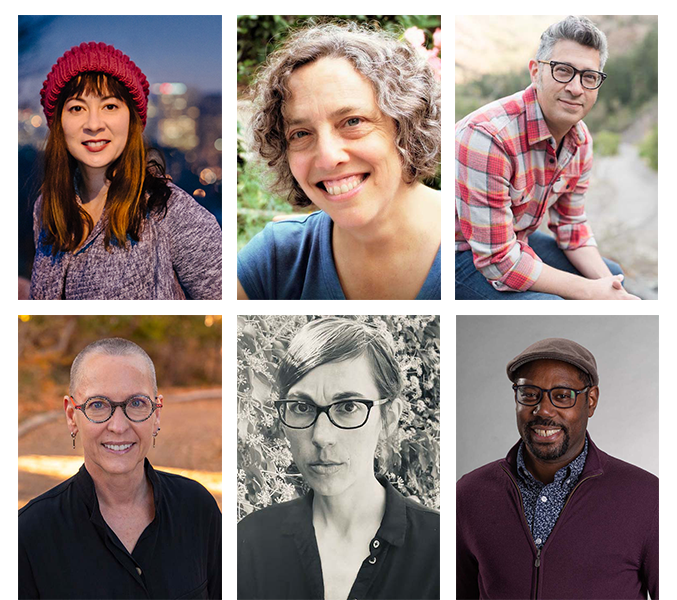
Contact Information
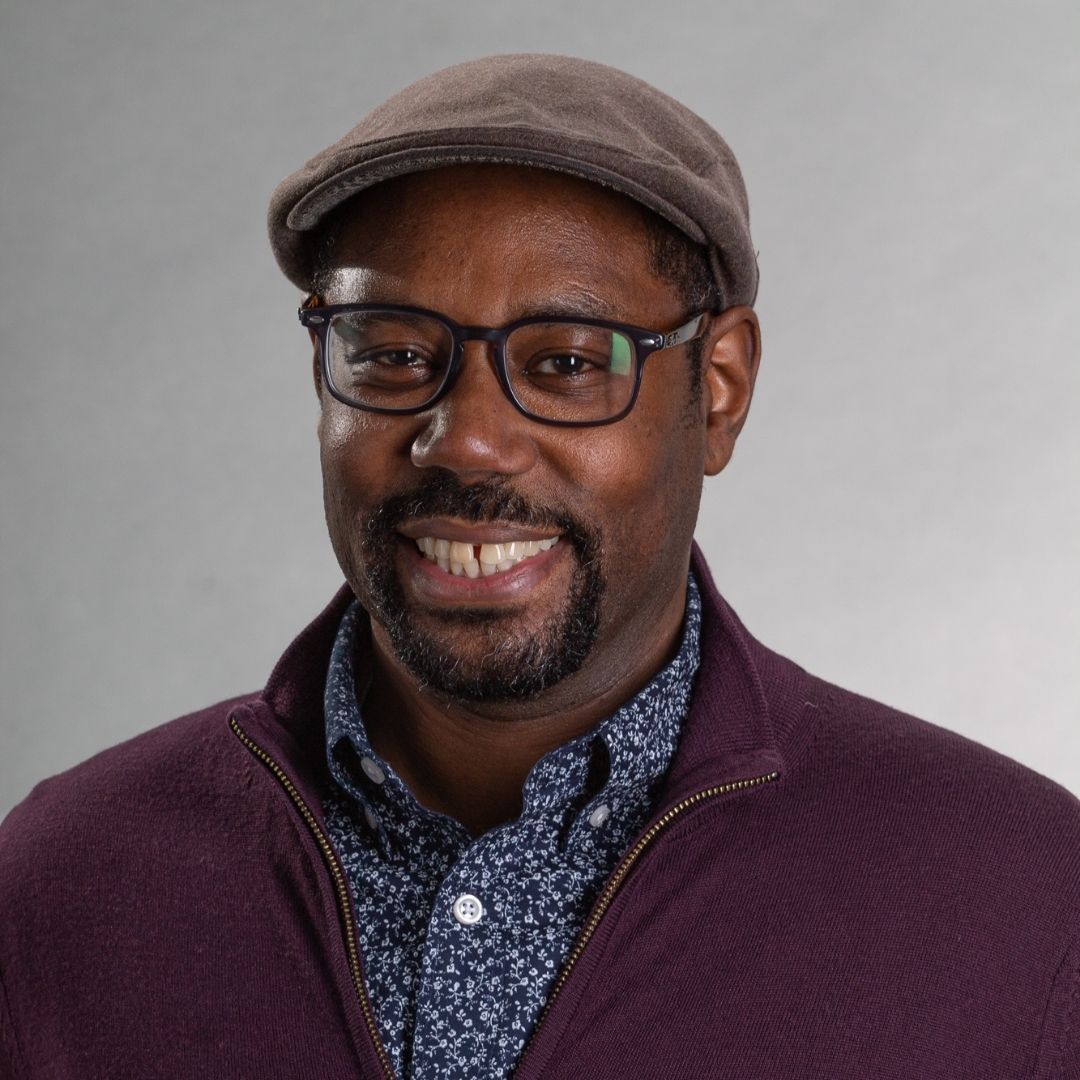
Rone Shavers Dir., Creative Writing Program (Fall 2024) [email protected]
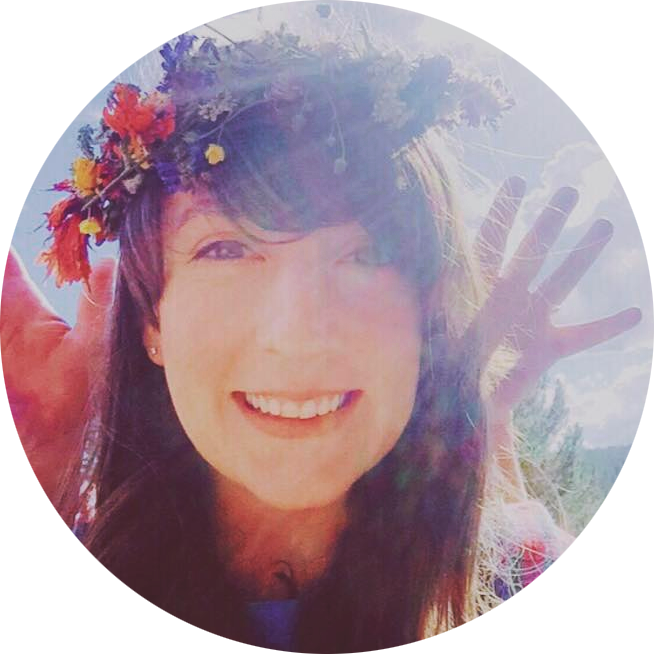
Karli Sam Graduate Advisor [email protected]
Graduate Degrees in Creative Writing
We offer two graduate degrees in Creative Writing: An MFA and a PhD that prepares students to pursue careers as teachers of writing. The creative Writing faculty also sponsors an annual Guest Writers Series and the Utah Symposium in Science and Literature .
Graduate students also comprise the editorial staff of Quarterly West and Western Humanities Review , and host the monthly Working Dog readings.
Creative Writing MFA Information
CREATIVE WRITING MFA - Modular Track Information
CREATIVE WRITING PhD Information
English MFA - Creative Writing
The English MFA program in creative writing is small and selective. It gives students the opportunity to study literature, participate in intensive writing workshops, and work in a close community of writers. Studies may focus their literature coursework in any area of English or American literature.
Coursework Requirements
English mfa timeline.
Students will take a minimum of nine courses of at least three credit hours each:
- Four creative writing workshops
- English 7450: Narrative Theory and Practice or English 7460: Theory and Practice of Poetry (depending on the genre of the thesis)
- Four other courses, including at least two literary history courses
MA Thesis & Thesis Defense
During their residence, MFA students are expected to work closely with members of the creative writing faculty and write book-length thesis of publishable quality —a novel, a collection of stories, or a collection of poems.
A complete draft of the thesis should be submitted to the committee chair at least three weeks before the desired defense date. After the thesis has been approved by the chair, a defense date is scheduled and cleared with the other committee members. When the date and time have been set, the student should inform the Graduate Advisor, who will schedule a room for the defense and post an announcement so that the public may attend.
Click on the link below to download a recommended, two-year timeline for an MFA in English from our department.
ENGLISH MFA TIMELINE
English MFA - Creative Writing (Modular Track)
The University of Utah Creative Writing Program offers a modular MFA program in poetry, fiction and nonfiction that allows students to take courses in Environmental Humanities, the History of the American West and Book Arts while completing a manuscript in the genre of their choice.
Funding Opportunities
About the modular track.
The modular MFA is the only MFA program in the nation that allows students to create courses of study that would capitalize on these three distinct areas, to use the historical, aesthetic and cultural knowledge gained from these subjects in their own creative writing. Upon entering the MFA program, students interested in the modular MFA would declare whether they wanted to pursue a single track (MFA with an Environmental Humanities emphasis, for instance) or a multidisciplinary track (MFA with an American West/Environmental Humanities emphasis).
While enrolled in a writing workshop of their choice each semester, students will also take a wide variety of graduate and upper-level undergraduate courses from departments across campus, including History, Communication, Art and Art History, Philosophy and Film, as well as English. These courses include topics such as Environmental Ethics, Film Directors of the American West, Bookbinding, Digital Arts, Global Environmental History, Videogame Studies, Sound Poetry, Artists’ Books, and Art and Architecture of the American West. Students are also encouraged to take our hybrid graduate writing workshop called Experimental Forms in which students combine poetry, fiction, nonfiction and new media in diverse and original ways.
Modular MFA Requirements
Our traditional MFA program requires nine graduate courses, plus six hours of thesis research. Of these nine courses, four are creative writing workshops, one is a theory and practice in the genre of the student’s thesis, and at least four courses are in literary history and special topics.
Our modular MFA program requires the same number of courses and hours of thesis research, but allows students in particular modules (or multi-disciplinary modules) to take courses outside English to fulfill their four literary history/special topics requirements.
Approved Modular Courses
Below is a list of possible approved courses regularly offered at the university in each of the three modules that modular MFA students might take. This list is not exhaustive; modular MFA students are encouraged to research their departments of interest to find other graduate and upper-division undergraduate courses that might apply. Courses not on this list must be pre-approved by both the Director of Graduate Studies and the Director of Creative Writing for the student to receive credit towards her modular MFA degree.
Environmental Humanities
EHUM 6900/005: Environmental Leadership/Orientation Week 0, Fall1 EHUM 101: Foundation in Environmental Humanities Fall1 EHUM 6103: Ecology of Residency (Taft-Nicholson Center - Summer) Fall2 EHUM 6105: EH Writing Seminar Spring1 EHUM 6804: Tertulia - Reading/discussion group - Fall1, Spring 1
Other courses of interest
Environmental Humanities encourages students to explore courses offered through the College of Humanities. Courses vary semester to semester, year to year. Courses of interest might include:
COMM 6360: Environmental Communication COMM 7200: Environmental Communication EHUM 6850: Issues in Environmental Humanities - topic varies according to semester ENGL 5980: Ecoctriticism ENGL 6240: Literature of the American West ENGL 6810: Post-humanist Theory & Practice ENGL 7700: Seminar in American Studies ENGL 7850: Digital Humanities HIST 6380: US Environmental History HIST 7670: Colloquium in Environmental History PHIL 5530: Environmental Philosophy PHIL 6520: Advanced Bioethics
American West
ENGL 6200: Introduction to American Studies ENGL 7700: Special Topics in American Studies ARCH 6231: Art and Architecture of the American West HIST 6910: Special Studies in American History HIST 7620: Colloquium in the History of the American West HIST 7870: Colloquium in the American West FILM 7870: Special Topics in American West Film and Filmmakers
Book Arts / Publishing / New Media
ENGL 7050: Experimental Forms ENGL 7810: Publications Workshop: Lit and American Studies ENGL 6680, 7740 or 7720 (whichever number applies):
*Seminar in the Theory and Practice of New Media Writing *New Media and Poetry *Sound Poetry *Critical Studies in Artists’ Books
ARCH 6052: Digital Media ART 3360: Letterpress Printing ART 3365: Bookbinding ART 3630: Digital Studio ART 4060-065-070: Nonmajor Letterpress II ART 4075: Nonmajor bookbinding III ART 4090: Nonmajor Artist’s Books COMM 6520: Interactive Narrative COMM 6550: Digital Imaging COMM 6640: Comm Tech and Culture COMM 6650: Videogames Studies COMM 6670: Activism & New Media COMM 6680: Computer Mediated Communication COMM 6690: New Media, Special Topics COMM 7640: New Media, Special Topics
Students interested in pursuing the Modular MFA have the option of applying or being considered for a number of fellowship opportunities. Students primarily interested in Environmental Humanities will be considered for a half-teaching fellowship that will cover half their tuition expenses and fees. Students interested in the American West and/or Book Arts/New Media studies will be eligible to apply for The Center for American West/ J.W. Marriott Special Collections Fellowships after they have been accepted into the MFA program. These fellowships will require that students work as archivists and transcribers in one of four areas: Science and Technology in the West, Multimedia Archives of the West, Utah Oral Histories, and Utah Outdoor Recreation Oral Histories.
Students who are selected for one of these fellowships will receive first-year funding for tuition and fees of up to $12,400 with the possibility of the same amount of funding for a second year. Students who receive the Center for American West/J.W. Marriott Special Collections Fellowship will also be given credit for a one-credit independent study course in Archival Research that will be noted on their transcripts.
Publishing internships also may be made available with FC2, Eclipse, University of Utah Press, Red Butte Press/Book Arts, and other local journals and presses. Credit for internships may fall under the heading of ENGL 7810, the publications workshops for Literature and American Studies.
English PhD - Creative Writing
The English PhD with a specialization in Creative Writing is neither a fine arts degree nor simply a traditional literature PhD with a creative dissertation. The program is designed to help the student become a better writer, as well as a writer who knows the history of his or her chosen genre and who is aware of the critical theory relevant to it.
The PhD is generally recognized as a writer's best preparation for a teaching career at the college or university level. Many colleges cannot afford to hire someone to teach only creative writing; the PhD is strong evidence that the writer can also teach literature courses and that he or she can take a full and active part in the academic community.
Qualifying Examinations
- English PhD Timeline
Students will take ten courses of at least three credits each:
- English 6480: Introduction to Critical Theory
- At least three workshops (one in a genre other than the dissertation is recommended)
- At least three courses in literary history, including one covering literature before 1700 and one covering literature between 1700 and 1900
- English 7450: Narrative Theory and Practice or English 7460: Theory and Practice of Poetry (depending on the genre of the dissertation)
- One or two electives (depending on the number of workshops taken; one of these courses may be taken in a department other than English, with the prior approval of the Director of Graduate Studies)
In creative writing, exams focus on the genre (poetry or prose) of the student’s dissertation. Students will be examined in four fields; lists in each field normally include 25-30 major works or their equivalent. Students must complete all required coursework and satisfy the language requirement before scheduling their qualifying exams. Examination lists will be devised by students in consultation with the members of their committee.
- The genre from its beginnings until the end of the nineteenth century
- The genre from the beginning of the twentieth century to the present
- Topics or themes are devised in consultation with the student’s supervisory committee, especially the committee chair, and might focus on specific literary, generic, or thematic areas (e.g., history of lyric, gothic literature, graphic novels, the literature of war, queer literature, etc.) or a cultural studies field or otherwise interdisciplinary area (e.g., American studies, digital humanities, film studies, race/ethnic studies, religious studies, gender/sexuality studies, art history, etc.).
- This list will focus on theoretical questions relevant to the genre or the dissertation.
English Creative PhD Timeline
Click on the link below to download a recommended, two-year timeline for a Creative Writing PhD in English from our department.
ENGLISH Creative Writing PhD TIMELINE

Creative Writing
Introduction.
Being a creative writer in Hawai’i is a thrilling and transformative experience. Our location grounds us in the indigenous islands of Hawai’i and at the vibrant crossroads of Kanaka Maoli (Native Hawaiian), Pacific, Asian, American, and European literatures, languages, histories, and cultures. The diverse environment (from the beaches to the rainforest, from the city to the ocean), the creative array of local and indigenous foods, and the collaborations between art and activism will enliven your imagination.
Description
We offer a B.A. in English, with a Creative Writing concentration; an M.A. in English, with a creative thesis; and a Ph.D. in English, with a creative dissertation. Our unique position within a dynamic English Department allows graduate students to take a two-year core creative writing curriculum, alongside courses in literary studies, cultural studies, indigenous studies, life writing, oral traditions, and composition.
Our core creative writing curriculum offers a productive mix of workshops, seminars, and craft courses. Graduate students will develop an understanding of literary movements, genres, theories, forms, and techniques, while also cultivating editorial and revision skills. Throughout, students will even have opportunities to hone their performance style, professional development, and creative writing pedagogy.
Our widely published and critically acclaimed creative writing faculty represent an impressive range of academic, aesthetic, cultural, and geographical backgrounds. Our faculty members are passionate teachers, and several are even committed to important social, environmental, and political movements in Hawai’i and the Pacific. Faculty interests include: poetry, fiction, creative nonfiction, and songwriting; literatures of Hawaiʻi, the Pacific, Asia, the United States, India, and Europe; multicultural, postmodern, multilingual, postcolonial, indigenous, and Pacific literary theories.
Distinguished Visiting Writer in Residence
Every Spring semester, we sponsor a Distinguished Visiting Writer in Residence. This appointment brings an accomplished writer to our campus for an entire semester to teach two creative writing/literature courses, to perform at a public reading, to conduct a professional development workshop, and to become involved in our literary community.
Ethical Mission
We believe that creative writers have the power to educate, entertain, inspire, empower, heal, dignify, humanize, remember, and imagine. Thus, we ask our graduate students to consider these questions: What is our responsibility, as writers, to communities outside the university? How can we, as writers, deepen discussions on climate change, militarization, colonialism, and capitalism in the 21st century?
Professional Development Workshops
Each semester, our visiting and core faculty conduct professional development workshops related to creative writing. Workshop topics may include, but are not limited to: pursuing grants, awards, and residencies; attending festivals and conferences; preparing submissions for publication or literary prizes; creating a social media profile; seeking academic and non-academic jobs; managing reading tours and publicity; and more.
Community-Engaged Creative Writing
An important component of our creative writing program is our commitment to community-engaged creative writing projects. Graduate students are encouraged to participate in literary projects that benefit communities outside our university. Previous and current projects range from writing workshops for youth, women prisoners, and senior citizens, to literary readings at public libraries, the Hawaiʻi Book and Music Festival, and the Bishop Museum.
Spoken Word & Oral Poetry
We believe there is a connection between traditional orature of Hawai’i and the Pacific and the contemporary literary arts of spoken word, amplified poetry, and oral poetics. We offer courses in oral poetics and workshops on performance. Students can also experience traditional Hawaiian and Pacific chanting and song through various events that occur on campus. Lastly, we support various spoken word projects, poets, and events on campus and throughout Hawaiʻi.
Faculty and Staff
ENG KUY Meeting room Sign-up Sheet
Contact us:
1733 Donaghho Road
Kuykendall 402
Honolulu, HI 96822
(808) 956-7619
Graduate Admissions
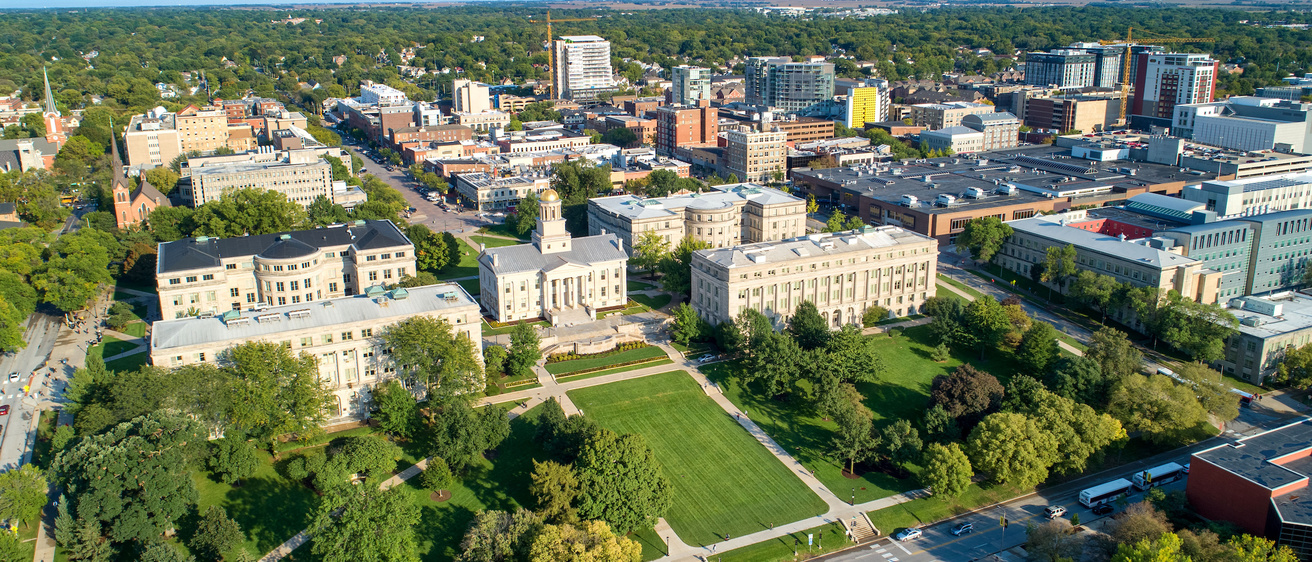
Creative Writing (MFA in English)
The MFA in English with a focus in Creative Writing is awarded by the Graduate College. The Creative Writing Program, also known as the Iowa Writers' Workshop, also offers Nondegree Course Work . For the MFA in English with a focus in nonfiction writing, apply to the Nonfiction Writing Program .
Applicants must meet the Admission Requirements of the Graduate College and the department offering the degree program (review the department's web site or the General Catalog for departmental requirements).
Tuition and fees vary by degree program and the type of student you are.
- Fall semester—Dec. 15
- Spring semester—not offered
The graduate application process has two steps
- You must first submit the online application to the Graduate College and pay the $60 application fee by credit card ($100 for international applicants).
- Once you have submitted your application, you will receive an email instructing you on how to upload your supporting documents and submit letters of recommendation. A few programs require materials be sent directly to them. However, almost all supplemental material can and should be uploaded from your Admissions Profile in MyUI , our online service center for applicants and students. You can only access this AFTER you have submitted your application.
Degree Program Supplemental Materials
- Mail manuscript of your best work, with a Manuscript Cover Sheet (PDF) - address listed below Receipt of your manuscript will be noted on your Admissions Profile.
- A Statement of Purpose
- Application for Graduate Awards
- Your General GRE test scores (optional but recommended)
- Supplemental Financial Aid
Recommendations
The application requirement section of your Profile includes an electronic letter of recommendation feature. If your program of study requires letters of recommendation, you will be asked to give the contact information of your recommenders including their email on your Admissions Profile. The recommender will then get an email giving them instructions on how to upload the recommendation letter and/or form.
- Three letters of recommendation
Materials to send to Admissions
- A set of your unofficial academic records/transcripts uploaded on your Admissions Profile. If you are admitted, official transcripts will be required before your enrollment. For international records, all records should bear the original stamp or seal of the institution and the signature of a school official. Documents not in English must be accompanied by a complete, literal, English translation, certified by the issuing institution.
- Your official GRE scores are not required for admission to this program. However, applications that include GRE scores may be more competitive for a greater range of financial assistance (the University's institutional code is 6681).
- International students may also be required to submit TOEFL, IELTS, or DuoLingo scores to comply with the university's English Language Proficiency Requirements .
- Once recommended for admission, international students must send a Financial Statement .
Apply Online , the $60 application fee ($100 for international students) is payable by Discover, MasterCard, or Visa.
Creative Writing Program The University of Iowa 102 Dey House Iowa City, IA 52242-1000 [email protected] 1-319-335-0416
Enrollment Management The University of Iowa 2900 University Capitol Centre 201 S. Clinton St. Iowa City, IA 52242 [email protected] 1-319-335-1523
- Skip to Content
- Catalog Home
- Institution Home
Sacramento State
- College of Arts and Letters /
MA in English (Creative Writing)
Total units required for the MA: 30
Program Description
The M.A. In English with a Concentration in Creative Writing is recommended for students preparing to teach at the community college level, for those students whose objective is to pursue an M.F.A. or Ph.D. in creative writing, and writers seeking to advance their understanding of creative writing practice and theory.
In general, the M.A. degree in each of its concentrations seeks to enhance students' skills in: critical reading; analysis of language, ideas, and the formal attributes of texts; creative engagement with the writing traditions of its two disciplinary fields; and independent research.
The two concentrations of the English M.A. offer preparation for students who aspire: to teach writing or literary study in high-school or community-college settings; to teach English to adult learners and to students abroad; to pursue career opportunities in fields such as journalism, publishing, law, and creative writing, advertising, arts administration, or civil service; or to pursue study at the doctoral level.
Because many graduate students work during the day, most graduate courses are scheduled for late afternoon and evening hours.
Admission Requirements
Admission as a classified graduate student in English requires:
For: All Applicants to the MA in English
- a baccalaureate degree;
- a minimum GPA of 3.0 in the last 60 units of all university level coursework or a 3.0 GPA in courses in the English major on the transcript from the degree granting institution;
- a minimum of 27 units of upper division courses in English;
- (for foreign students from non-English speaking countries) a TOEFL score of 600 or higher (or a score of 250 or higher on the Computerized TOEFL) and a score of 5 on the Test of Written English; and
- a minimum of fifteen units of upper-division coursework in literature
- at least one course must primarily address British literature and at least one course must primarily address American literature;
Application Materials Required by the English Department for All Applicants
In addition to the materials that must be sent directly to the Office of Graduate Studies as outlined in "Application Materials Required by the University" (below), students must also send additional material by the application deadline.
Before submitting the materials, please check with the English Department website ( http//www.csus.edu/engl/ ) for updates and specific deadlines.
Please include the following as part of the supplemental application:
- Personal statement of no more than 300-500 words. The personal statement should discuss the applicant's interest in the program concentration (literature or creative writing) that he or she has chosen and the experiences (academic and non-academic) that have shaped this interest and prepared the applicant for graduate work in this field.
- Three confidentially submitted recommendation forms (found on the department website) for all students (both California State University, Sacramento and other institutions). Students graduating from universities other than California State University, Sacramento, must also provide formal letters from their three recommenders in addition to the completed recommendation forms.
- Writing sample for Creative Writing applicants only (for prose or fiction, the writing sample should be no more than 15 pages; for poetry, the writing sample should consist of approximately 5 or 6 poems).
- Students graduating from any institution other than California State University, Sacramento, must send directly to the English Department an official copy of all transcripts from each institution of higher education that they have attended.
- A completed Department of English Supplemental Application found on the University's online application for admission.
The Graduate Coordinator will screen all applicants according to these requirements and a ranking system devised by the department. Applicants who have deficiencies in these admission requirements which can be removed by specified additional preparation will be ranked accordingly but may be admitted with conditionally classified graduate status. Any deficiencies will be noted on a written response from the Graduate Coordinator to the student's admission application.
Application Materials Required by the University
In addition to any materials sent directly to the department, all prospective graduate students including California State University, Sacramento, graduates, must file the following with the Office of Graduate Studies, River Front Center 215, (916) 278-6470:
- an online application for admission;
- one set of official transcripts from all colleges and universities attended, other than California State University, Sacramento; and
- TOEFL scores, if applicable.
Note: For materials that must be sent as part of the supplemental application, see "Application Materials Required by the English Department" as listed above.
Applicants are accepted as long as room for new students exists or until the deadline passes. Applicants should file as early as possible.
For more admissions information and application deadlines, please visit the Office of Graduate Studies website.
Minimum Units and Grade Requirements for the Degree
Units required for the MA: 30 Minimum Cumulative GPA: 3.0. No units with a grade lower and "C" may apply towards the degree
Advancement to Candidacy
Each student must file an application for Advancement to Candidacy, indicating a proposed program of graduate study. This procedure should begin as soon as the classified graduate student has:
- removed any deficiencies in admission requirements;
- completed at least 12 units of English 200-level courses in the Master's Degree program with a minimum cumulative grade point average of 3.0; and
- taken the Writing Placement for Graduate Students (WPG) or taken a Graduate Writing Intensive (GWI) course in their discipline within the first two semesters of coursework at California State University, Sacramento or secured approval for a WPG waiver .
Advancement to Candidacy forms are available on the Office of Graduate Studies website. The student fills out the form after planning a degree program in consultation with an English faculty advisor. The completed form is then returned to the Office of Graduate Studies for approval.
Program Requirements
| Code | Title | Units |
|---|---|---|
| Required Courses (16 Units) | ||
| Methods and Materials of Literary Research | 4 | |
| Teaching College Composition | 4 | |
| Seminar in Literary History | 4 | |
| Contemporary Theory | 4 | |
| Concentration in Creative Writing (12 Units) | ||
| Select one course from the ENGL 230 series (Creative Writing) | 4 | |
| Selection one additional course from the ENGL 230 or 130 series (Creative Writing) | 4 | |
| Master Class in Writing Fiction | 4 | |
| or | Master Class in Writing Poetry | |
| Culminating Requirement (2 Units) | ||
| Culminating Experience | 2 | |
| Total Units | 30 | |
In order to satisfy the Graduation Writing Assessment Requirement (GWAR) and advance to candidacy, Creative Writing and Literature students must receive a "B" or higher in ENGL 200A. For more information on this requirement and possible equivalencies, please visit: | |
The culminating requirement for Creative Writing Concentration shall be the Comprehensive Examination (Plan C), for which student will prepare by taking ENGL 500. |
- College of Liberal & Applied Arts
Department of English & Creative Writing

- Future Students
- New Students
- Current Students
- Faculty & Staff
- High School Counselors
- Alumni & Friends
- Academics - Majors, Minors, Degrees, and Online Programs
- English & Creative Writing
Graduate Programs
A master’s degree for more career options.
The Department of English and Creative Writing offers:
- a master's degree with two tracks (literature and creative writing)
- a certificate in advanced English pedagogy
- an advanced certificate in professional writing
- and a graduate minor in English or creative writing
With a balanced curriculum of research, theory and practice, a Master of Arts in English gives you a sophisticated literary education and superior writing skills. You’ll be well-prepared for a career in journalism, business and technical writing, media and entertainment, research or library science, communications, publishing and editorial work, or education and tutoring.
An advanced English degree also makes you better qualified for work in areas such as human resources, market research, sales, public relations and other professions not typically thought of as career paths for English majors.
Learn more about possible career paths.
Admission requirements and prerequisites
All applicants for the English graduate programs must submit
- a completed application - Apply to SFA and pay the required applicaiton fee
- a letter of interest
- a résumé or C.V.
- three letters of recommendation,
- and official transcripts from all colleges and universities attended.
Applicants for the Master of Arts in English program must also submit a 10- to 12-page writing sample.
- For those applying to the literature track, the writing sample should consist of a researched literary analysis or other academic essay.
- For those applying to the creative writing track, the sample must consist of original fiction, poetry or creative non-fiction.
A writing sample is not necessary from applicants for the certificate program.
Prior education requirements:
- For the Master of Arts in English program, applicants must have a bachelor’s degree and minimum of 24 semester hours of undergraduate coursework in English.*
- For the certificate in advanced English pedagogy program, applicants must have a bachelor’s degree and minimum of 18 semester hours of undergraduate coursework in English.*
- For either program, applicants should have a GPA of 3.0 or higher on their last 60 credit hours of undergraduate work. Students who have a GPA below 3.0 but above 2.7 may be admitted to the program on a probationary basis.
- Students who have fewer semester hours of undergraduate credit in English than required may still apply but will need to complete coursework to establish a background for graduate study.
Graduate minors in English and creative writing
Students pursuing a graduate degree outside the Department of English and Creative Writing may choose to pair their degree with a nine-hour minor in either English or creative writing.
Important: Enrollment in the graduate creative writing minor requires approval from the Director of Graduate Studies.
For more information on course offerings in the Department of English and Creative Writing, please see the Graduate Bulletin .
View Degree Maps and Course Descriptions
Graduate Programs Dr. Ericka Hoagland [email protected]
Dugas Liberal Arts North Room 203
Mailing Address: P.O. Box 13007, SFA Station Nacogdoches, Texas 75962
- Utility Menu
- Creative Writing
The vital presence of creative writing in the English Department is reflected by our many distinguished authors who teach our workshops. We offer courses each term in fiction, poetry, nonfiction, screenwriting, playwriting, and television writing. Our workshops are small, usually no more than twelve students, and offer writers an opportunity to focus intensively on one genre.
Apply to Creative Writing Workshops
Workshops are open by application to Harvard College undergraduates, graduate students, staff, and students from other institutions eligible for cross registration. Submission guidelines for workshops can be found under individual course listings; please do not query instructors. Review all departmental rules and application instructions before applying.
Fall 2024 Application Deadline: 11:59 pm ET on Sunday, April 7, 2024. Spring 2025 Application Deadline: TBD
Please visit our course listings for all the Fall 2024 workshops.
Our online submission manager (link below) will open for Fall 2024 applications on Friday, March 22 , 2024.
Students who have questions about the creative writing workshop application process should contact Case Q. Kerns at [email protected] .

Featured Faculty
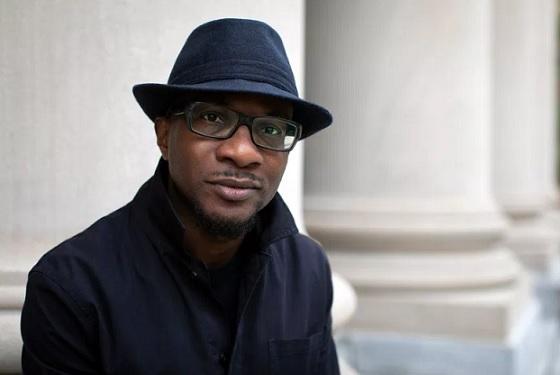
Teju Cole is a novelist, critic, and essayist, and is the first Gore Vidal Professor of the Practice. "Among other works, the boundary-crossing author is known for his debut novel “Open City” (2011), whose early admirers included Harvard professor and New Yorker critic James Wood."
Faculty Bookshelf
Cooked by michael pollan (2013).
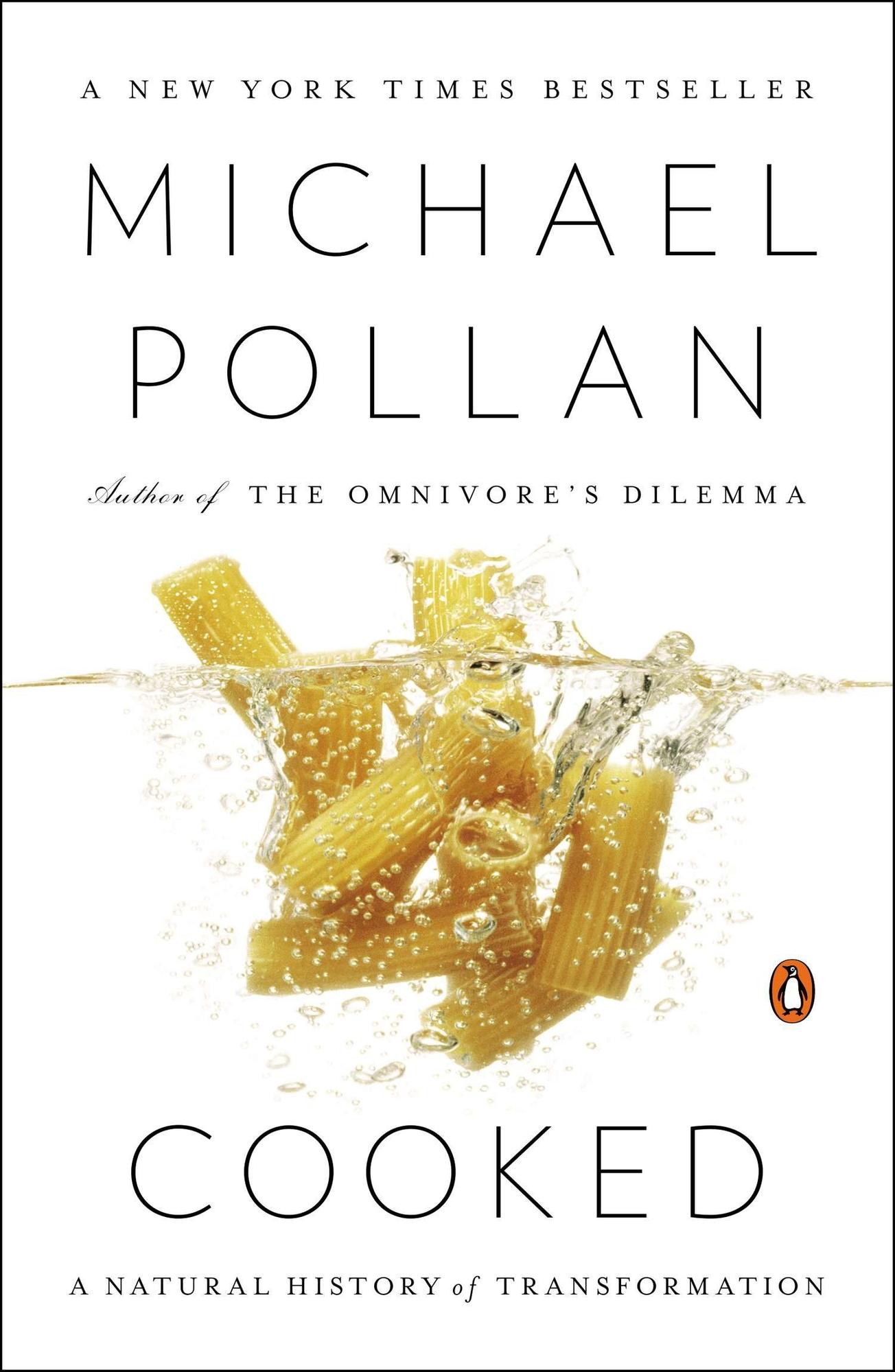
The Burning Girl by Claire Messud (2017)

Place: New Poems by Jorie Graham (2012)

The Woman Upstairs by Claire Messud (2013)
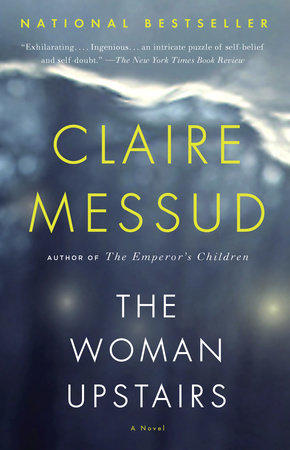
Creative Writing Workshops
- Spring 2024
English CACD. The Art of Criticism
Instructor: Maggie Doherty Wednesday, 12:00-2:45pm | Location: TBD Enrollment: Limited to 12 students Course Site
This course will consider critical writing about art–literary, visual, cinematic, musical, etc.—as an art in its own right. We will read and discuss criticism from a wide variety of publications, paying attention to the ways outlets and audience shape critical work. The majority of our readings will be from the last few years and will include pieces by Joan Acocella, Andrea Long Chu, Jason Farago, and Carina del Valle Schorske. Students will write several short writing assignments (500-1000 words), including a straight review, during the first half of the semester and share them with peers. During the second half of the semester, each student will write and workshop a longer piece of criticism about a work of art or an artist of their choosing. Students will be expected to read and provide detailed feedback on the work of their peers. Students will revise their longer pieces based on workshop feedback and submit them for the final assignment of the class. Apply via Submittable (deadline: 11:59pm EDT on Sunday, April 7) Supplemental Application Information: Please write a letter of introduction (1-2 pages) giving a sense of who you are, your writing experience, and your current goals for your writing. Please also describe your relationship to the art forms and/or genres you're interested in engaging in the course. You may also list any writers or publications whose criticism you enjoy reading. Please also include a 3-5-page writing sample of any kind of prose writing. This could be an academic paper or it could be creative fiction or nonfiction.
English CACW. Advanced Fiction Workshop
Instructor: Paul Yoon TBD | Location: TBD Enrollment: Limited to 12 students Advanced fiction workshop for students who have already taken a workshop at Harvard or elsewhere. The goal of the class is to continue your journey as a writer. You will be responsible for participating in discussions on the assigned texts, the workshop, engaging with the work of your colleagues, and revising your work. Supplemental Application Information: * Please note: previous creative writing workshop experience required. * Please submit ONLY a cover letter telling me your previous creative writing workshop experience, either at Harvard or elsewhere; then tell me something you are passionate about and something you want to be better at; and, lastly, tell me why of all classes you want to take this one this semester. Again, please no writing samples.
English CBBR. Intermediate Poetry: Workshop
Instructor: Josh Bell Monday, 12:00-2:45pm | Location: Barker 018 Enrollment: Limited to 12 students Course Site
Initially, students can expect to read, discuss, and imitate the strategies of a wide range of poets writing in English; to investigate and reproduce prescribed forms and poetic structures; and to engage in writing exercises meant to expand the conception of what a poem is and can be. As the course progresses, reading assignments will be tailored on an individual basis, and an increasing amount of time will be spent in discussion of student work. Apply via Submittable (deadline: 11:59pm EDT on Sunday, April 7)
Supplemental Application Information: Please submit a portfolio including a letter of interest, ten poems, and a list of classes (taken at Harvard or elsewhere) that seem to have bearing on your enterprise.
English CCEP. Ekphrastic Poetry: Workshop
Instructor: Tracy K. Smith Wednesday, 3:00-5:45 pm | Location: Lamont 401 Enrollment: Limited to 12 students Course Site What can a poem achieve when it contemplates or even emulates a work of art in another medium? In this workshop, we'll read and write poems that engage with other art forms--and we'll test out what a foray into another artistic practice allows us to carry back over into the formal methods and behaviors of poetry. With poems by Keats, Rilke, Auden, Hughes, and Brooks, as well as Kevin Young, Evie Shockley, Ama Codjoe and other contemporary voices. Apply via Submittable (deadline: 11:59pm EDT on Saturday, August 26) Supplemental Application Information: Please submit a writing sample of 5-10 poems and an application letter explaining your interest in this course.
English CCFC. Poetry Workshop: Form & Content
Instructor: Tracy K. Smith Tuesday, 12:00-2:45pm | Location: Sever 112 Enrollment: Limited to 12 students Course Site
In this workshop, we’ll look closely at the craft-based choices poets make, and track the effects they have upon what we as readers are made to think and feel. How can implementing similar strategies better prepare us to engage the questions making up our own poetic material? We’ll also talk about content. What can poetry reveal about the ways our interior selves are shaped by public realities like race, class, sexuality, injustice and more? Apply via Submittable (deadline: 11:59pm EDT on Saturday, August 26)
Supplemental Application Information: Please submit a writing sample of 5-10 poems and an application letter explaining your interest in this course.
English CCIJ. Intermediate Fiction Workshop
Instructor: Jesse McCarthy Thursday, 3:00-5:45 pm | Location: Barker 269 Enrollment: Limited to 12 students Course Site This is an intermediate course in the art of writing literary fiction. Previous experience with workshopping writing is encouraged but not required. The emphasis of the course will be learning how to read literature as a writer, with special attention given to the short story, novella, or short novel. We will read these works from the perspective of the writer as craftsperson and of the critic seeking in good faith to understand and describe a new aesthetic experience. We will be concerned foremost with how literary language works, with describing the effects of different kinds of sentences, different uses of genre, tone, and other rhetorical strategies. Together, we will explore our responses to examples of literature from around the world and from all periods, as well as to the writing you will produce and share with the class. As a member of a writing community, you should be prepared to respectfully read and respond to the work of others—both the work of your peers and that of the published writers that we will explore together. Apply via Submittable (deadline: 11:59pm EDT on Saturday, August 26) Supplemental Application Information: This course is by application only but there are no prerequisites for this course and previous experience in a writing workshop is not required . In your application please submit a short letter explaining why you are interested in this class. You might tell me a bit about your relationship to literature, your encounter with a specific author, book, or even a scene or character from a story or novel. Please also include a writing sample of 2-5 pages (5 pages max!) of narrative prose fiction.
English CCFS. Fiction Workshop
Instructor: Teju Cole Spring 2024: Tuesday, 6:00-8:45pm | Location: TBD Enrollment: Limited to 12 students Course Site Spring 2025: TBD This reading and writing intensive workshop is for students who want to learn to write literary fiction. The goal of the course would be for each student to produce two polished short stories. Authors on the syllabus will probably include James Joyce, Eudora Welty, Toni Morrison, Alice Munro, Jhumpa Lahiri, and Diane Williams.
Supplemental Application Information: Please submit a cover letter saying what you hope to get out of the workshop. In the cover letter, mention three works of fiction that matter to you and why. In addition, submit a 400–500 word sample of your fiction; the sample can be self-contained or a section of a longer work.
English CLPG. Art of Sportswriting
Instructor: Louisa Thomas Spring 2024: Tuesday, 9:00-11:45am | Location: TBD Enrollment: Limited to 12 students Course Site Spring 2025: TBD
In newsrooms, the sports section is sometimes referred to as the “toy department” -- frivolous and unserious, unlike the stuff of politics, business, and war. In this course, we will take the toys seriously. After all, for millions of people, sports and other so-called trivial pursuits (video games, chess, children’s games, and so on) are a source of endless fascination. For us, they will be a source of stories about human achievements and frustrations. These stories can involve economic, social, and political issues. They can draw upon history, statistics, psychology, and philosophy. They can be reported or ruminative, formally experimental or straightforward, richly descriptive or tense and spare. They can be fun. Over the course of the semester, students will read and discuss exemplary profiles, essays, articles, and blog posts, while also writing and discussing their own. While much (but not all) of the reading will come from the world of sports, no interest in or knowledge about sports is required; our focus will be on writing for a broad audience. Supplemental Application Information: To apply, please write a letter describing why you want to take the course and what you hope to get out of it. Include a few examples of websites or magazines you like to read, and tell me briefly about one pursuit -- football, chess, basketball, ballet, Othello, crosswords, soccer, whatever -- that interests you and why.
English CALR. Advanced Screenwriting: Workshop
Instructor: Musa Syeed Spring 2024: Wednesday, 12:00-2:45pm | Location: TBA Enrollment: Limited to 12 students Course Site Spring 2025: TBD
The feature-length script is an opportunity to tell a story on a larger scale, and, therefore, requires additional preparation. In this class, we will move from writing a pitch, to a synopsis, to a treatment/outline, to the first 10 pages, to the first act of a feature screenplay. We will analyze produced scripts and discuss various elements of craft, including research, writing layered dialogue, world-building, creating an engaging cast of characters. As an advanced class, we will also look at ways both mainstream and independent films attempt to subvert genre and structure. Students will end the semester with a first act (20-30 pages) of their feature, an outline, and strategy to complete the full script.
Supplemental Application Information: Please submit a 3-5 page writing sample. Screenplays are preferred, but fiction, creative non-fiction, poetry, and plays are acceptable as well. Also, please write a short note to introduce yourself. Include a couple films/filmmakers that have inspired you, your goals for the class, as well as any themes/subject matter/ideas you might be interested in exploring in your writing for film.
English CNFR. Creative Nonfiction: Workshop
Instructor: Darcy Frey Fall 2024: Wednesday, 3:00-5:45 pm | Location: TBD Enrollment: Limited to 12 students. Course Site Spring 2025: TBD
Whether it takes the form of literary journalism, essay, memoir, or environmental writing, creative nonfiction is a powerful genre that allows writers to break free from the constraints commonly associated with nonfiction prose and reach for the breadth of thought and feeling usually accomplished only in fiction: the narration of a vivid story, the probing of a complex character, the argument of an idea, or the evocation of a place. Students will work on several short assignments to hone their mastery of the craft, then write a longer piece that will be workshopped in class and revised at the end of the term. We will take instruction and inspiration from published authors such as Joan Didion, James Baldwin, Ariel Levy, Alexander Chee, and Virginia Woolf. This is a workshop-style class intended for undergraduate and graduate students at all levels of experience. No previous experience in English Department courses is required. Apply via Submittable (deadline: 11:59pm ET on Sunday, April 7)
Supplemental Application Information: Please write a substantive letter of introduction describing who you are as writer at the moment and where you hope to take your writing; what experience you may have had with creative/literary nonfiction; what excites you about nonfiction in particular; and what you consider to be your strengths and weaknesses as a writer. Additionally, please submit 3-5 pages of creative/literary nonfiction (essay, memoir, narrative journalism, etc, but NOT academic writing) or, if you have not yet written much nonfiction, an equal number of pages of narrative fiction.
English CKR. Introduction to Playwriting: Workshop
Instructor: Sam Marks TBD | Location: TBD Enrollment: Limited to 12 students This workshop is an introduction to writing for the stage through intensive reading and in-depth written exercises. Each student will explore the fundamentals and possibilities of playwriting by generating short scripts and completing a one act play with an eye towards both experimental and traditional narrative styles. Readings will examine various ways of creating dramatic art and include work from contemporary playwrights such as Ayad Aktar, Clare Barron, Aleshea Harris, Young Jean Lee, and Taylor Mac, as well established work from Edward Albbe, Caryl Churchill, Suzan Lori-Parks, and Harold Pinter. Supplemental Application Information: No experience in writing the dramatic form is necessary. Please submit a 5-10 page writing sample (preferably a play or screenplay, but all genres are acceptable and encouraged). Also, please write a few sentences about a significant theatrical experience (a play read or seen) and how it affected you.
English CACF. Get Real: The Art of Community-Based Film
Instructor: Musa Syeed Wednesday, 12:00-2:45pm | Location: TBD Enrollment: Limited to 12 student Course Site
“I’ve often noticed that we are not able to look at what we have in front of us,” the Iranian director Abbas Kiarostami said, “unless it’s inside a frame.” For our communities confronting invisibility and erasure, there’s an urgent need for new frames. In this workshop, we’ll explore a community-engaged approach to documentary and fiction filmmaking, as we seek to see our world more deeply. We’ll begin with screenings, craft exercises, and discussions around authorship and social impact. Then we each will write, develop, and shoot a short film over the rest of the semester, building off of intentional community engagement. Students will end the class with written and recorded materials for a rough cut. Basic equipment and technical training will be provided.
Apply via Submittable (deadline: 11:59pm EDT on Sunday, April 7)
Supplemental Application Information: Please submit a brief letter explaining why you're interested to take this class. Please also discuss what participants/communities you might be interested in engaging with for your filmmaking projects. For your writing sample, please submit 3-5 pages of your creative work from any genre (screenwriting, poetry, fiction, non-fiction, etc.)
English CAFR. Advanced Fiction Workshop: Writing this Present Life
Instructor: Claire Messud Thursday, 3:00-5:45 pm | Location: TBD Enrollment: Limited to 12 students Course Site Intended for students with prior fiction-writing and workshop experience, this course will concentrate on structure, execution and revision. Exploring various strands of contemporary and recent literary fiction – writers such as Karl Ove Knausgaard, Rachel Cusk, Chimamanda Adichie, Douglas Stuart, Ocean Vuong, etc – we will consider how fiction works in our present moment, with emphasis on a craft perspective. Each student will present to the class a published fiction that has influenced them. The course is primarily focused on the discussion of original student work, with the aim of improving both writerly skills and critical analysis. Revision is an important component of this class: students will workshop two stories and a revision of one of these. Apply via Submittable (deadline: 11:59pm ET on Sunday, April 7)
Supplemental Application Information: Please submit 3-5 pages of prose fiction, along with a substantive letter of introduction. I’d like to know why you’re interested in the course; what experience you’ve had writing, both in previous workshops and independently; what your literary goals and ambitions are. Please tell me about some of your favorite narratives – fiction, non-fiction, film, etc: why they move you, and what you learn from them.
English CAKV. Fiction Workshop: Writing from the First-Person Point of View
Instructor: Andrew Krivak Tuesday, 9:00-11:45 1m | Location: TBD Enrollment: Limited to 12 students Course Site This course is a workshop intended for students who are interested in writing longer form narratives from the first-person point of view. The “I” at the center of any novel poses a perspective that is all at once imaginatively powerful and narratively problematic, uniquely insightful and necessarily unreliable. We will read from roughly twelve novels written in the first-person, from Marilynne Robinson and W.G. Sebald, to Valeria Luiselli and Teju Cole, and ask questions (among others) of why this form, why this style? And, as a result, what is lost and what is realized in the telling? Primarily, however, students will write. Our goal will be to have a student’s work read and discussed twice in class during the semester. I am hoping to see at least 35-40 pages of a project —at any level of completion—at the end of term. Apply via Submittable (deadline: 11:59pm EDT on Sunday, April 7) Supplemental Application Information: Please write a substantive letter telling me why you’re interested in taking this class, what writers (classical and contemporary) you admire and why, and if there’s a book you have read more than once, a movie you have seen more than once, a piece of music you listen to over and over, not because you have to but because you want to. Students of creative nonfiction are also welcome to apply.
English CCSS. Fiction Workshop: The Art of the Short Story
Instructor: Laura van den Berg Tuesday, 12:00-2:45 pm | Location: TBD Enrollment: Limited to 12 students Course Site This course will serve as an introduction to the fundamentals of writing fiction, with an emphasis on the contemporary short story. How can we set about creating “big” worlds in compact spaces? What unique doors can the form of the short story open? The initial weeks will focus on exploratory exercises and the study of published short stories and craft essays. Later, student work will become the primary text as the focus shifts to workshop discussion. Authors on the syllabus will likely include Ted Chiang, Lauren Groff, Carmen Maria Machado, and Octavia Butler. This workshop welcomes writers of all levels of experience. Apply via Submittable (deadline: 11:59pm EDT on Sunday, April 7) Supplemental Application Information: Please submit a letter of introduction. I’d like to know a little about why you are drawn to studying fiction; what you hope to get out of the workshop and what you hope to contribute; and one thing you are passionate about outside writing / school. Please also include a very brief writing sample (2-3 pages). The sample can be in any genre (it does not have to be from a work of fiction).
Write an Honors Creative Thesis
Students may apply to write a senior thesis or senior project in creative writing, although only English concentrators can be considered. Students submit applications in early March of their junior year, including first-term juniors who are out of phase. The creative writing faculty considers the proposal, along with the student's overall performance in creative writing and other English courses, and notifies students about its decision in early mid-late March. Those applications are due, this coming year, on TBA .
Students applying for a creative writing thesis or project must have completed at least one course in creative writing at Harvard before they apply. No student is guaranteed acceptance. It is strongly suggested that students acquaint themselves with the requirements and guidelines well before the thesis application is due. The creative writing director must approve any exceptions to the requirements, which must be made in writing by Monday, February 7, 2022. Since the creative writing thesis and project are part of the English honors program, acceptance to write a creative thesis is conditional upon the student continuing to maintain a 3.40 concentration GPA. If a student’s concentration GPA drops below 3.40 after the spring of the junior year, the student may not be permitted to continue in the honors program.
Joint concentrators may apply to write creative theses, but we suggest students discuss the feasibility of the project well before applications are due. Not all departments are open to joint creative theses.
Students who have questions about the creative writing thesis should contact the program’s Director, Sam Marks .
Events Gallery
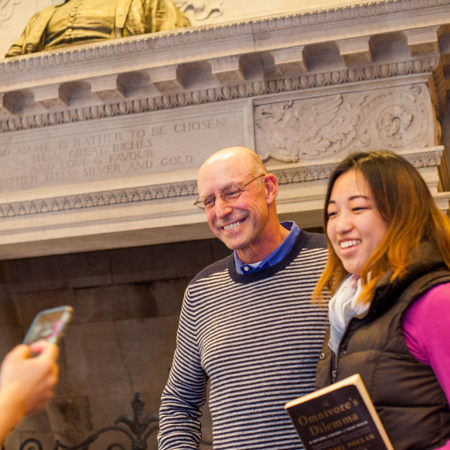
- Guide for Concentrators
- Declare English
- Secondary Field
- Alumni Features and Careers
- Prizes and Fellowships
- Research, Resources, and Forms
Fully Funded MFA Programs in Creative Writing
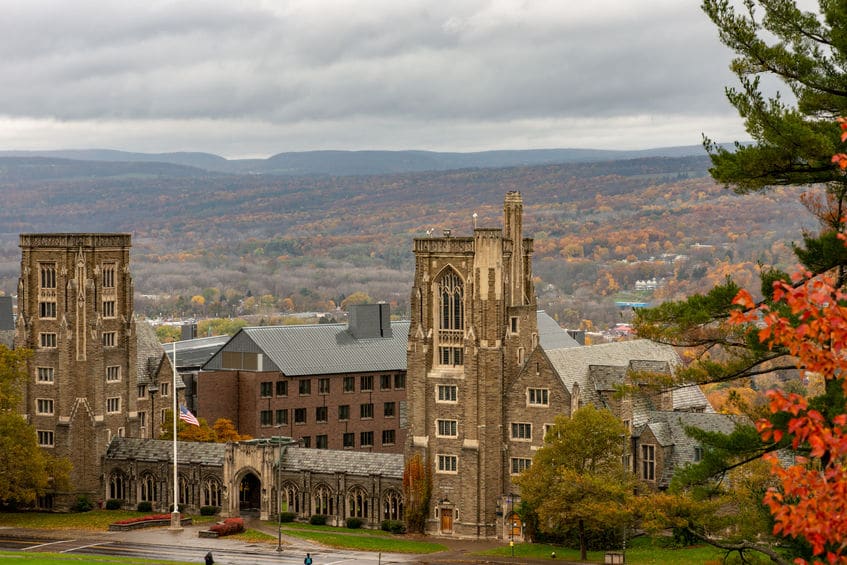
As part of our series How to Fully Fund Your Master’s Degree , here is a list of universities that have fully funded MFA programs in creative writing. A Master’s of Fine Arts in creative writing can lead to a career as a professional writer, in academia, and more.
Fully funded MFA programs in Creative Writing offer a financial aid package for full-time students that includes full tuition remission as well as an annual stipend or salary during the entire program, which for Master’s degrees is usually 1-2 years. Funding usually comes with the expectation that students will teach or complete research in their field of study. Not all universities fully fund their Master’s students, which is why researching the financial aid offerings of many different programs, including small and lesser-known schools both in the U.S. and abroad, is essential.
In addition to listing fully funded Master’s and PhD programs, the ProFellow fellowships database also includes external funding opportunities for graduate school, including fellowships for dissertation research, fieldwork, language study, study abroad, summer work experiences, and professional development.
Would you like to receive the full list of more than 1000+ fully funded Master’s and PhD programs in 60 disciplines? Download the FREE Directory of Fully Funded Graduate Programs and Full Funding Awards !
Here is the list of 53 universities that offer fully-funded MFA programs (Master’s of Fine Arts) in Creative Writing.
University of Alabama (Tuscaloosa, AL): Students admitted to the MFA Program are guaranteed full financial support for up to 4-years. Assistantships include a stipend paid over nine months (currently $14,125), and full payment of up to 15 credit hours of graduate tuition.
University of Arizona (Tucson, AZ): All accepted MFA students receive full funding through a graduate teaching assistantship for 3 years. This package includes tuition remission, health insurance, and a modest stipend (in 2018 it was about $16,100 per academic year).
Arizona State University (Tempe, AZ): 3-year program. All students admitted to the MFA program who submit a complete and approved teaching assistantship application are awarded a TA by the Department of English. Each assistantship carries a three-course per year load and includes a tuition waiver and health insurance in addition to the TA stipend ($18,564 per year). In addition, students have diverse opportunities for additional financial and professional support.
University of Arkansas (Fayetteville, AR): Four-year program. Teaching assistantships currently carry an annual stipend of $13,500 for students with a BA. TAs also receive a waiver of all tuition costs and teach two courses each semester. Nearly all of our accepted students receive TAs. Additionally, the students compete each year for several fellowships.
Boise State University (Boise, Idaho): 3-year fully funded MFA program dedicated to poetry and fiction. All students receive a tuition waiver, health insurance, and a Teaching Assistantship with a stipend of $11,450 per year.
Bowling Green State University (Bowling Green, OH): 2-year program, graduate assistantships (including stipend and scholarship) are available for all eligible face-to-face students. 100% tuition scholarship. Graduate stipend (the 2020-21 stipend is $11,500).
Brown University (Providence, RI): All incoming MFA students received full funding. All graduate students receive a fellowship that pays a monthly stipend and provides tuition remission, the health fee, and health insurance. The stipend for the 2020-2021 academic year is $29,926. Also, students in good standing receive a summer stipend of $2,993.
Boston University (Boston, MA): Tuition costs will be covered for every admitted student for the MFA degree in the BU Creative Writing Program. In addition, admitted students will receive university health insurance while they are enrolled, and all admitted students will receive stipend support of roughly $16,000 for the academic year.
Cornell University (Ithaca, NY): All MFA degree candidates are guaranteed 2 years of funding (including a stipend, a full-tuition fellowship, and student health insurance).
University of California Irvine (Irvine, CA): 3-year program. The Department is committed to providing 3 full years of financial support to all domestic students in the MFA Programs in Writing. Financial support for MFA students is given in the form of Teaching Assistantships providing full tuition coverage as well as University health insurance. Students will earn an estimated $22,569 for the academic year.
University of California San Diego (La Jolla, CA): MFA in Writing students are eligible for financial support if they study full-time, maintain good academic standing and make timely progress toward the degree. All students are eligible for full funding, including international students provided they meet the English language certification requirement for teaching assistants.
University of California Riverside (Riverside, CA): All incoming students are granted a full fellowship and stipend for their first year. After the first year, students receive full tuition and a salary through teaching assistantships.
Florida Atlantic University (Boca Raton, FL): 3-year program. All of the MFA students qualify for a position as a Graduate Teaching Assistant. The GTA position comes with a tuition waiver and a stipend. The standard stipend is $9,000, but some enhanced stipends are available. The Graduate College offers several fellowships for current graduate students.
Florida State University (Tallahassee, FL): The majority of students receive support in the form of a teaching assistantship and are provided with a stipend, a tuition waiver, and a health-insurance subsidy. MFA students receive a three-year assistantship. For 2022-23, MA/MFA stipends will be $16,400, and typically these amounts go up each year. Also, The FSU Graduate School offers several fellowships and awards.
Georgia College & State University (Milledgeville, GA): The MFA Program offers workshops in fiction, creative nonfiction, and poetry, and students take cross-genre workshops. All students admitted to the MFA program receive a Graduate Assistantship for all 3 years that includes a stipend and tuition remission.
University of Houston (Houston, TX): MFA students can receive a teaching assistantship for 3 years. Starting salary for MFAs is $17,935/9 months. Students in the Creative. As part of the assistantship, students are awarded either a Graduate Tuition Fellowship, which remits tuition, or a Creative Writing Program Fellowship, which covers the cost of tuition.
University of Idaho (Moscow, Idaho): All English Teaching Assistants (TA’s) are offered full tuition waivers. Teaching Assistants are given a stipend of $14,000 per year. Also offers three scholarships and three outstanding fellowships to support qualified MFA, graduate students.
University of Illinois, Urbana-Champaign (Urbana, IL): Three-year MFA program. Students accepted into the MFA program will receive full tuition waivers, guaranteed teaching assistantships.
Indiana University (Bloomington, IN): M.F.A. programs offer a generous teaching package to creative writing students. All applicants receive consideration for appropriate fellowships that will carry a stipend of about $19,000, plus tuition and fee-remission that covers roughly 90% of the cost of enrollment.
Iowa State University (Ames, IA): 3-year MFA program. Starting half-time 20 hours per week teaching assistantships for MFA students total $19,250 over 10 months and also receive a full-tuition waiver scholarship (approximate value $10,140) and health insurance coverage. The department has several resources available through which to offer fellowships and scholarships to qualifying new students.
University of Iowa (Iowa City, IA): 2-year residency program. Financial assistance is available for all students enrolled in the program, in the form of teaching assistantships, research assistantships, and fellowships. Most fellowships and assistantships provide either tuition scholarships or full tuition remission.
John Hopkins University (Baltimore, MD): 2-year program. All students receive full tuition, health insurance, and a generous teaching fellowship, currently set at $30,500 per year. Some students work as assistant editors on The Hopkins Review. They often win prizes such as Stegner Fellowships or grants from the National Endowment for the Arts.
University of Maryland (College Park, MD): This 3-year program accepts 8 applicants who are fully funded by Teaching Assistantships for up to three years of graduate study. Our aid packages include a stipend of about $20,000 per academic year and 60 credit hours of tuition remission.
Miami University (Oxford, OH): All students admitted to the MFA program in Creative Writing hold generous Graduate Assistantships (which include a summer stipend). Non-teaching assistantships may also be available.
University of Miami (Coral Gables, FL): An intensive two-year study with a third year option. The James Michener Fellowships and Teaching Assistantships support all our graduate students. Awards include a full tuition waiver and annual stipend of $18,915.
University of Michigan (Ann Arbor, MI): All MFA students accepted into the program are offered a full tuition waiver, a stipend of $23,000/yearly as well as $5,000 in summer funding, and health care benefits. Additionally, various fellowships and prizes are awarded each year to MFA students.
University of Minnesota (Minneapolis, MN): All admitted MFAs receive full funding, in the form of teaching assistantships or fellowships. Teaching assistantships carry a full tuition waiver, health benefits, and a stipend of about $18,600. Also, a variety of fellowships are available for graduate students.
University of Mississippi (University, MS): All of our students are fully funded. We offer two main sources of funding, the Grisham Fellowships and Teaching Assistantships.
University of Nevada Las Vegas (Las Vegas, NV): 3-year program. All MFA students admitted to the Creative Writing International program at UNLV are offered Graduate Assistantship funding of $15,000 per year (which includes in-state tuition and provisions for health insurance).
Northwestern University (Evanston, IL): Funding is provided for 3 full years, summers included. Tuition is covered by a tuition scholarship during any quarter in which you are receiving a stipend.
University of Notre Dame (Notre Dame, IN): Every student admitted to the MFA receives a full-tuition scholarship, a fellowship that carries a full stipend of $16,000 per year and access to a 100% health insurance subsidy.
North Carolina State University (Raleigh, NC): A two-year, fully-funded program, They accept only about a dozen students each year and offer full funding in the form of a graduate teaching assistantship to all eligible admitted applicants.
Ohio State University (Columbus, OH): All admitted students are fully funded for our 3-year MFA program in Creative Writing. In addition, all students receive either a graduate teaching associateship, a Graduate School fellowship or a combination of the two. For graduate teaching associateships, the student receives a stipend of at least $17,000 for the nine-month academic year.
University of Oregon (Eugene OR): A two-year residency MFA program. All incoming MFA students funded with a teaching appointment. Student instructors receive tuition remission, monthly stipends of approximately $18,000.
Oregon State University (Corvallis, OR): All students admitted to the MFA program will automatically receive a standard teaching Graduate Teaching Assistantship contract, which provides full tuition remission and stipend of approximately $12,800 per year to cover living expenses. In addition to tuition remission, all graduate students have the option to receive 89% coverage of health insurance costs for themselves and their dependents.
University of Pittsburgh (Pittsburgh, PA): 3-year MFA program. All students admitted to the program will receive Teaching Assistantships for two or three years. All Teaching Assistantships include salary, medical benefits, and tuition remission.
Rutgers University–Newark (Newark, NJ): Each full-time incoming student receives in-state Tuition Remission and a Chancellor’s Stipend of 15K per year. Students are also eligible for Teaching Assistantships, and Part-Time Lectureships teaching Comp or Creative Writing. Teaching Assistantships are $25,969 (approximate) plus health benefits.
University of South Florida (Tampa, FL): 3-year program. MFA students receive a tuition waiver, a teaching assistantship that comes with a stipend, and enrollment in group health insurance.
Southern Illinois University (Carbondale, IL): Almost all MFA students hold graduate assistantships, which provide stipends for the academic year and full remission of tuition. The annual stipend, which comes with tuition remission, ranges from $13,000 to $14,500.
Syracuse University (Syracuse, NY): Three-Year M.F.A. in Creative Writing. All students are fully funded. Each student admitted receives a full-tuition scholarship in addition to an annual stipend of $17,500.
University of South Carolina (Columbia, SC): 3-year MFA program. The MFA at Carolina is pleased to provide fellowship and/or assistantship funding to all accepted students, earning our program the designation of “fully funded” from Poets and Writers.
University of Tennessee — Knoxville (Knoxville, TN): There is no cost to apply to the MFA program. All of our PhD candidates and MFA students are fully funded, with generous opportunities for additional financial support.
University of Texas in Austin (Austin, TX): All students in the New Writers Project receive three years of full funding through a combination of teaching assistantships (TA), assistant instructorships (AI), and fellowship support. The complete package includes full tuition remission, health insurance, and a salary.
University of Texas James Michener Center (Austin, TX): A three-year, fully funded residency MFA program that provides full and equal funding to every writer. All admitted students receive a fellowship of $29,500 per academic year, plus total coverage of tuition.
Vanderbilt University (Nashville, TN): Each year a small, select class of talented writers of fiction and poetry enroll in Vanderbilt’s three-year, fully-funded MFA Program in Creative Writing. The University Fellowship provides full-tuition benefits, health insurance, and a stipend of $30,000/yearly. In 2nd year and third-year students have the opportunity to teach for one semester.
University of Virginia (Charlottesville, VA): Three-year MFA program. Students will receive fellowship support and/or teaching income in the amount of $20,000 each academic year, as well as full funding of your tuition, enrollment fees, and the health insurance premium for single-person coverage through the university.
Virginia Tech (Blacksburg, VA): Three-year MFA degree offers tracks in Poetry and Fiction, and all students are fully and equally funded via GTA-ships of more than $20,000 per year.
Washington University in St. Louis (St. Louis, MO): Because of selectivity and size they are able to offer all the new students full and equal financial aid for both years in the program in the form of a University Fellowship, which provides a complete tuition waiver plus a stipend sufficient for students to live comfortably in our relatively inexpensive city. All MFA students receive health insurance through Washington University.
Western Kentucky University (Bowling Green, KY): Three-year, fully-funded, residential MFA program in creative writing offering generous assistantships, which will allow MFA students to gain valuable experience tutoring and teaching.
West Virginia University (Morgantown, WV): A three-year program. All Master of Fine Arts students receive a full tuition waiver and an assistantship, which includes a stipend valued at $16,750.
Wichita State University (Wichita, Kansas): Most of the MFA students are GTAs who teach two composition classes each semester. They pay no tuition, receive $4,250 each semester and may buy discounted health insurance. The MFA program also awards two $12,500 fellowships each year.
University of Wisconsin–Madison (Madison, WI): All accepted MFA candidates receive tuition remissions, teaching assistantships, generous health insurance, and other financial support. In addition to the approximately $14,680 paid to each MFA annually in exchange for teaching, every MFA candidate will receive another $9,320 in scholarships each year.
University of Wyoming (Laramie, WY): All of our full-time MFA students are fully funded with two-year graduate assistantships. Currently, assistantships include a stipend of $12,330 per academic year, a tuition and fees waiver, and student health insurance. Students also receive summer stipends of up to $2,000 for the summer.
Would you like to receive the full list of more than 1,000+ fully funded PhD and master’s programs? Get your copy of ProFellow’s FREE Directory of Fully Funded Graduate Programs and Full Funding Awards !
©️ ProFellow, LLC 2021, all rights reserved.
Related Posts:
- Free Workshop! Find 5+ Fully Funded Graduate Programs to Achieve Your Career Goals
- Free Webinar! Find 5+ Fully Funded Graduate Programs to Achieve Your Career Goals
- Fully Funded PhD Programs in School Psychology
- Fully Funded PhD Programs in Health Informatics
- Fully Funded PhD Programs in the United Kingdom
Creative Arts Fellowships , Fully Funded Master's Programs , Writing Fellowships
Why You Should Ignore the News About the “Catastrophic” Academic J...
Benefitting the environment and the economy: the 1 hotels fellowship e..., find and win paid, competitive fellowships.
Be alerted about new fellowship calls for applications, get insider application tips, and learn about fully funded PhD and graduate programs
Fellowship Resources
- Calls for Applications
- Upcoming Fellowship Deadlines
- Fellowships Database
- Interviews with Fellows
- International Fellows Network
- Graduate Funding Directory
Fellowship Tips
- What is a Fellowship?
- Fully Funded Course
- Graduate School Funding
- Fellowship Application Tips
- Fulbright Application Tips
- Fellowship Application Guide
- Our Mission, History & Values
- ProFellow Winner Testimonials
- Fully Funded Course Testimonials
- Fellowship Industry Report
- Advertise With Us
- Terms & Privacy
ProFellow is the go-to source for information on professional and academic fellowships, created by fellows for aspiring fellows.
©2011-2024 ProFellow, LLC. All rights reserved.
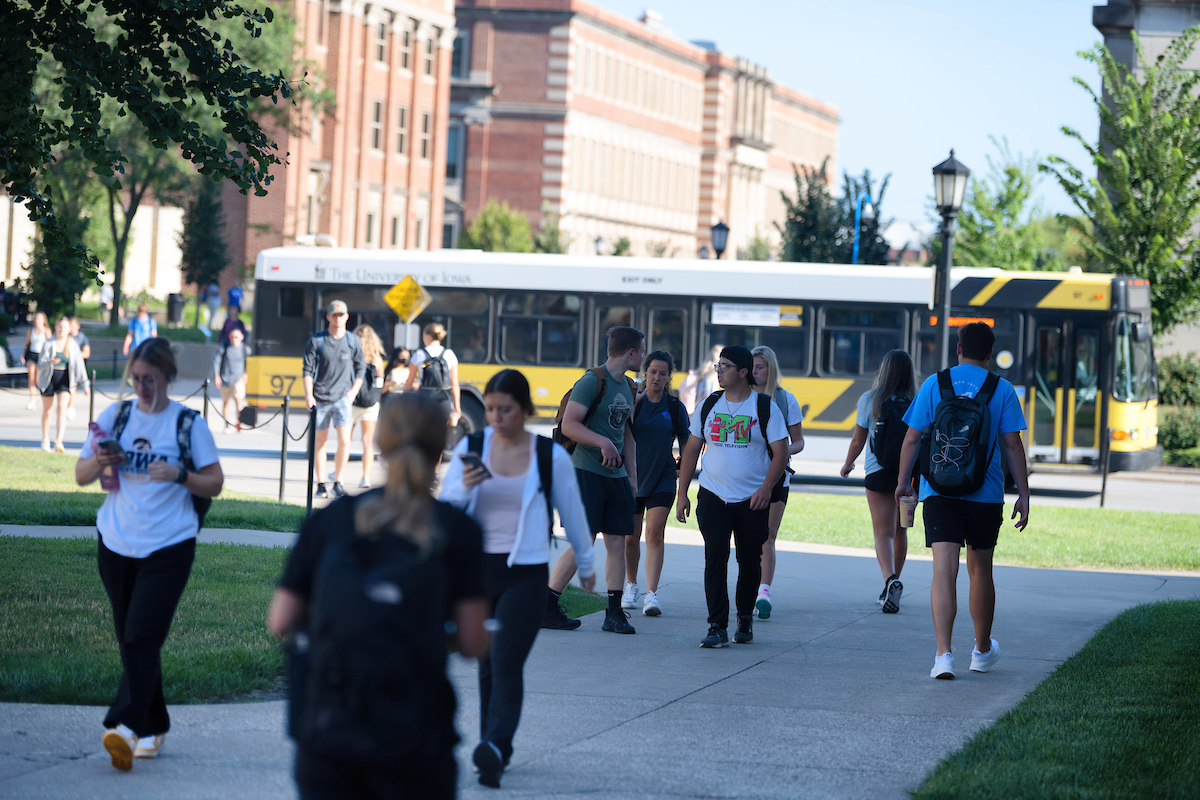
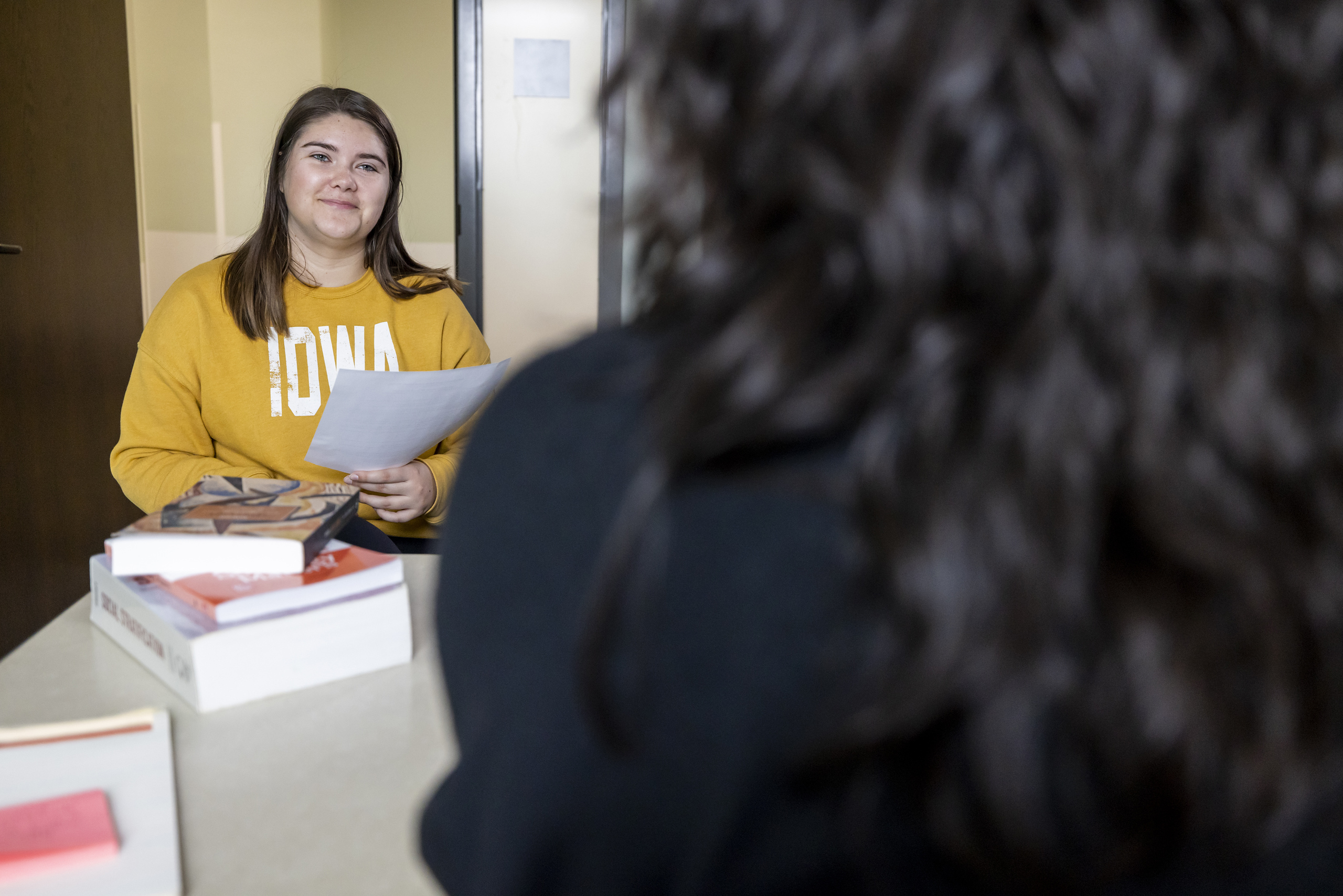


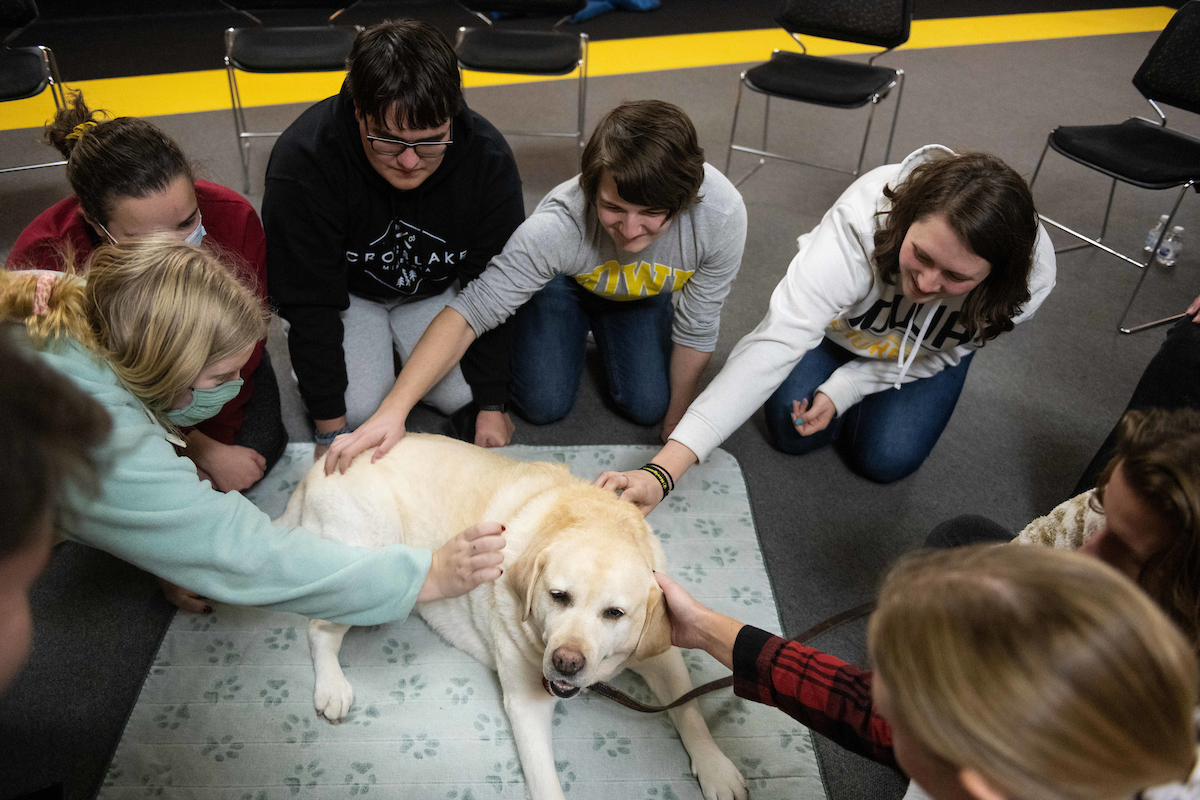
IMAGES
VIDEO
COMMENTS
Through the master's degree in creative writing and literature, you'll hone your skills as a storyteller — crafting publishable original scripts, novels, and stories. In small, workshop-style classes, you'll master key elements of narrative craft, including characterization, story and plot structure, point of view, dialogue, and ...
The Litowitz MFA+MA Program is the highest-funded graduate creative writing program in the country, providing a full three years of funding and free tuition, as well as health insurance and conference funding. Our faculty includes Natasha Trethewey, Chris Abani, Charif Shanahan, Juan Martinez, Daisy Hernández, and Sarah Schulman.
Earn a Master's in Creative Writing. $637/credit (36 credits) Inclusive creative writing community. 24/7 online access - attend class at your convenience. 100% online - no residency required. 4 genre options for concentrations. Complete in as few as 15 months, or at your own pace. Request Info Apply Now.
Graduate School. ·. 1 review. Master's Student: Overall, the University of Florida seems to be a great school as far as rankings and attendance rates go. Despite the political turmoil going on in the state of Florida, there seems to be a relatively strong student body of undergraduate students. Graduate students, however, are less cohesive.
The University of Washington English Department's Creative Writing Program offers a BA in English with a concentration in Creative Writing and a two-year Master of Fine Arts degrees in Poetry and Prose.. Founded in 1947 by Theodore Roethke, the Creative Writing Program's tradition of transformative workshops continues with our current faculty: David Bosworth, Nikki David Crouse, Rae Paris ...
Postsecondary Creative Writing Teacher. Median Annual Salary: $74,280. Minimum Required Education: Ph.D. or another doctoral degree; master's degree may be accepted at some schools and community ...
The Master of Fine Arts in Creative Writing is a two year program offering a degree in either Poetry or Prose, and is a part of the English Department's Creative Writing Program. Founded in 1947 by Theodore Roethke, the Creative Writing Program's tradition of transformative workshops continues with our current faculty: David Bosworth, David ...
Division of Continuing Education. Students enrolled in the Master of Liberal Arts program in Creative Writing & Literature will develop skills in creative writing and literary analysis through literature courses and writing workshops in fiction, screenwriting, poetry, and nonfiction. Through online group courses and one-on-one tutorials, as ...
University of Iowa is one of the best schools in the country for getting a master's degree in creative writing. Located in the city of Iowa City, Iowa is a public university with a very large student population. More information about a master's in creative writing from University of Iowa. Request Information. 5.
Our list of 256 MFA programs for creative writers includes essential information about low-residency and full-residency graduate creative writing programs in the United States and other English-speaking countries to help you decide where to apply. It also includes MA programs and PhD programs.
MA in Writing Program Overview. The Johns Hopkins MA in Writing program reflects our university's international reputation for academic rigor and creative innovation. Rooted in craft and led by working writers, our high-quality program is both challenging and supportive: We're here to offer clear, straightforward, thoughtful feedback while ...
The Department of English at the University of Toronto launched the MA Program in English in the Field of Creative Writing (MA CRW) in 2004-05. The program draws both on the expertise of faculty at the University of Toronto and on the extraordinary vitality of Toronto's writing community. Internationally acclaimed writers, a multiplicity of cultural traditions, and an
Earn an MFA in Creative Writing Online. $637/credit (48 credits total) Transfer up to 12 graduate credits. 100% online - no residency required. Four fiction genres to choose from. Career-focused certificate included. No application fee or GRE/GMAT scores required. Request Info Apply Now.
19,084 EUR / year. 1 year. The Creative Writing (Distance Learning) course at Kingston University offers you the chance to study with a range of well-established and award-winning writers in a dynamic writing environment, but without having to relocate or give up current commitments. M.A. / Full-time, Part-time / Online.
The curriculum for M.F.A. students emphasizes creative writing and literary study. The city of Houston offers a vibrant, multi-cultural backdrop for studying creative writing at the University of Houston. With a dynamic visual and performing arts scene, the Houston metropolitan area supplies a wealth of aesthetic materials.
The English MFA program in creative writing is small and selective. ... The University of Utah Creative Writing Program offers a modular MFA program in poetry, fiction and nonfiction that allows students to take courses in Environmental Humanities, the History of the American West and Book Arts while completing a manuscript in the genre of ...
There are four concentrations to choose from within the creative writing master's: (1) Fiction, (2) Nonfiction, (3) Poetry, and (4) Screenwriting. Southern New Hampshire University Online (SNHU) is a private university offering a Master of Arts in English and Creative Writing that requires 36 credit hours. This online program is designed to ...
We offer a B.A. in English, with a Creative Writing concentration; an M.A. in English, with a creative thesis; and a Ph.D. in English, with a creative dissertation. ... Our unique position within a dynamic English Department allows graduate students to take a two-year core creative writing curriculum, alongside courses in literary studies ...
Once recommended for admission, international students must send a Financial Statement. The MFA in English with a focus in Creative Writing is awarded by the Graduate College. The Creative Writing Program, also known as the Iowa Writers' Workshop, also offers Nondegree Course Work. For the MFA in English with a focus in nonfiction writing ...
Program Description. The M.A. In English with a Concentration in Creative Writing is recommended for students preparing to teach at the community college level, for those students whose objective is to pursue an M.F.A. or Ph.D. in creative writing, and writers seeking to advance their understanding of creative writing practice and theory.
Gainesville, FL ·. University of Florida ·. Graduate School. ·. 1 review. Master's Student: Overall, the University of Florida seems to be a great school as far as rankings and attendance rates go. Despite the political turmoil going on in the state of Florida, there seems to be a relatively strong student body of undergraduate students.
A master's degree for more career options. The Department of English and Creative Writing offers: a master's degree with two tracks (literature and creative writing); a certificate in advanced English pedagogy ; an advanced certificate in professional writing ; and a graduate minor in English or creative writing; With a balanced curriculum of research, theory and practice, a Master of Arts ...
The vital presence of creative writing in the English Department is reflected by our many distinguished authors who teach our workshops. We offer courses each term in fiction, poetry, nonfiction, screenwriting, playwriting, and television writing. Our workshops are small, usually no more than twelve students, and offer writers an opportunity to focus intensively on one genre.
Here is the list of 53 universities that offer fully-funded MFA programs (Master's of Fine Arts) in Creative Writing. University of Alabama (Tuscaloosa, AL): Students admitted to the MFA Program are guaranteed full financial support for up to 4-years. Assistantships include a stipend paid over nine months (currently $14,125), and full payment ...
The Course Catalog contains a description of specific polices, programs, degree requirements, and course offerings for Undergraduate and Graduate students at the University of South Florida
By Charlotte Brookins Whether you're an incoming first year, a transfer student, or even an upperclassman, many of us could use a refresher on how to get back into the routine of the school year. I'm Charlotte, a third-year English and creative writing major in the College of Liberal Arts and Sciences, also known as CLAS.